35 Best BSN to DNP Programs in the Nation – 2025
Written By: Darby Faubion BSN, RN
 Are you a registered nurse with a bachelor’s degree considering moving up the career ladder? Have you ever wondered what it would be like to reach the highest level of nursing practice? If this sounds like you, a BSN to DNP program could be what you need. Maybe you have already heard of this type of program but find yourself asking, “What are the best BSN to DNP bridge programs in the nation?” In this article, I will share information with you about the 35 best accredited online and campus BSN to DNP programs in the nation for 2025.
Are you a registered nurse with a bachelor’s degree considering moving up the career ladder? Have you ever wondered what it would be like to reach the highest level of nursing practice? If this sounds like you, a BSN to DNP program could be what you need. Maybe you have already heard of this type of program but find yourself asking, “What are the best BSN to DNP bridge programs in the nation?” In this article, I will share information with you about the 35 best accredited online and campus BSN to DNP programs in the nation for 2025.
In an effort to help you learn about these programs and make a decision about pursuing them, this article will provide you with information about the requirements for admission, coursework and clinical experiences, and discover answers to frequently asked questions.
Table Of Contents
What Exactly is a BSN to DNP (Bachelor of Science in Nursing-To-Doctor of Nursing Practice) Program?
The Doctor of Nursing Practice is a clinical practice degree. BSN to DNP programs are nursing programs that allow registered nurses with a Bachelor of Science in nursing (BSN) to earn a terminal degree as a Doctor of Nursing Practice. These degree programs prepare RNs for the highest level of education and practice, allowing you to advance your career.
7 Advantages of BSN to DNP Programs
Before enrolling in any college program, it is always a good idea to weigh the pros and cons. BSN to DNP programs require dedication, but the advantages are worth it. The following are a few advantages associated with BSN to DNP programs.
1. Increased Income Potential:
One of the biggest advantages of BSN to DNP programs is the potential for increased income after graduating. You could see an increase in your annual salary of $40,000 or more.2. Specialize in a Field You Love:
As a student in an accredited BSN to DNP program, you can choose from several specialty concentrations. The variety of specialties available means you can have a career you love serving in a capacity that interests you most.3. Long-Term Job Security:
Although having a DNP is not a requirement for advanced practice currently, there is a push to move entry-level advanced practice nursing from the master’s level to the doctoral level. Choosing to pursue a Doctor of Nursing Practice through BSN to DNP programs gets you ahead of the game and sets you up for long-term job security in the industry.4. Be Your Own Boss:
Many BSN to DNP graduates work in advanced practice roles such as Nurse Practitioner, Nurse Midwife, or Nurse Researcher. In these positions, you could choose to work in collaboration with other advanced practice nurses or have your own practice.5. Marketability:
Nurses with a DNP have a broader skill set and scope of practice. Having this degree helps increase your marketability and makes you more appealing to potential employers.6. Higher Levels of Autonomy:
BSN to DNP programs prepare students for advanced practice roles, including clinical practice and leadership roles. Because of your advanced degree, you will have more opportunities to work independently.7. Gain a Sense of Accomplishment:
When you complete a BSN to DNP program, you will undoubtedly have an amazing sense of accomplishment, and rightfully so. The Doctor of Nursing Practice is a prestigious degree, and you deserve to be proud of yourself for pursuing it.3 Disadvantages of BSN to DNP Programs
As you consider whether to pursue a Doctor of Nursing Practice degree, you should take into account that there are both advantages and disadvantages. The following are the three most mentioned disadvantages of BSN to DNP programs.
1. Cost:
One of the main concerns for individuals considering pursuing a doctoral degree is the cost, and BSN to DNP Programs can be quite expensive. Some BSN to DNP programs can cost as much as $150,000. Before you let that keep you from going back to school, keep in mind that there are several resources available to help offset the cost, such as grants, scholarships, and loans.2. You may not be able to continue working:
BSN to DNP programs consist of a very rigorous curriculum, clinical requirements and a DNP Scholarly Project. Because of the heavy course load and other program obligations, you may discover that continuing to work your regular job becomes difficult. If it is necessary for you to work while in school, discuss your schedule options with your academic advisor and your employer. Perhaps by working together, you can come up with a plan that allows you to work without too much distraction from your academic obligations.3. Some BSN to DNP programs take a long time to complete:
While there are some accelerated options for earning a DNP, they are not available at all schools. Also, some schools only offer part-time study options, which can prolong the amount of time it takes to graduate. If you plan to achieve a DNP in a particular timeframe, it is a good idea to check out several schools and find one that has study plans that align with your goals.How Long are BSN to DNP Programs?
It can take 18 months to five years to complete BSN to DNP programs. Factors such as the number of credits you need to complete, clinical requirements, and whether you attend part-time or full-time determine the length of time it takes to graduate. The following are examples of some of our featured programs and how long they take to complete.
• The BSN to DNP program at the University of Virginia can be completed in 33 to 36 months of full-time study. Part-time students typically take five to six years to graduate. Under some circumstances, the Dean may approve a 3-year accelerated path.
• Students enrolled in the University of Minnesota BSN to DNP program attend school full-time and graduate in three years.
• Rutgers University BSN to DNP students take from three to five years to complete the program, depending on specialty concentration. The Nurse Anesthesia pathway is a full-time 36-month option. All other specialty pathways have four- and five-year study plans available.
• The University of Iowa offers students in its BSN to DNP program the option of choosing a three- or four-year study plan.
How Much Do BSN to DNP Programs Cost?
The cost of education is one of the main factors people consider when deciding whether to go to college or to earn a higher degree. BSN to DNP programs cost anywhere from $40,000 to $150,000 or more. The following are a few examples of what some of our featured BSN to DNP programs cost.
• The University of Utah charges BSN to DNP students on a per-semester basis. Students who are Utah residents pay $5,126.06 per semester and out-of-state students pay $15,018.22 per semester. Students who progress successfully through the program can anticipate graduating in eight semesters. Therefore, in-state students pay $41,008.48, and out-of-state students pay $120,145.76.
• Tuition for the accredited BSN to DNP program at George Washington University costs $1,395 per credit hour. Students complete between 72 and 74 credit hours, making the cost of the program between $100,440 and $103,230.
• BSN to DNP students at the University of Illinois pay tuition on a per-credit basis, depending on whether they live in-state or out-of-state. Illinois resident students pay $975 per credit hour, and non-resident students pay $1,440 per credit hour. Students complete between 60 and 95 credits, based on their chosen specialty concentration. Therefore, tuition ranges from $58,500 to $92,625 for residents and $86,400 to $136,800 for non-resident students.
• At the University of Maryland, tuition costs $1,490 per credit hour. Students earn 80 to 93 credits, based upon the curriculum for their chosen specialty, making the program cost between $119,200 and $138,570.
How Many Credits are There in BSN to DNP Programs?
The curriculum for BSN to DNP programs varies and is based on a student’s chosen concentration. Students in these programs typically complete between 65 and 100 credit hours to meet graduation requirements for their programs.
• Adult Gerontology Clinical Nurse Specialist requires 70 credit hours.
• Adult-Gerontology Primary and Acute Care NP pathways include 75 credit hours of coursework each.
• The Neonatal Nurse Practitioner pathway includes 78 credit hours.
• The Women’s Health NP program includes a curriculum of 83 credit hours.
• The Pediatric Primary Care NP concentration requires students to complete 81 credit hours.
• The Pediatric Acute Care requires 84 credit hours.
• Students in the Family Nurse Practitioner pathway complete 86 credit hours.
• The Psychiatric Mental Health NP students complete 87 credit hours.
• The Nurse-Midwifery option consists of 100 credit hours.
• Students in the BSN to DNP program at Vanderbilt University complete 69-78 credit hours.
• At the University of Michigan, the BSN to DNP program’s curriculum consists of 72-100 credit hours.
• The University of Pittsburgh’s BSN to DNP program requires students to complete 78-99 credit hours.
• The curriculum for the BSN to DNP program at the University of Southern Alabama includes 68-87 credit hours.
What is the Typical Coursework in BSN to DNP Programs?
Students enrolled in BSN to DNP programs have already earned a bachelor’s degree, which means general education and pre-nursing coursework is usually already complete at the time of application. The curriculum for BSN to DNP students in any program includes Doctor of Nursing Practice core coursework and specialty-relevant classes. DNP core coursework consists of classes such as the following.
• Healthcare Policy for the Doctorally Prepared Nurse
• Biostatistics for Evidence-Based Practice
• Informatics for DNP Practice
• Planning, Management, and Evaluation of Programs and Projects
• Epidemiology Methods in Healthcare
The following are some examples of coursework at some of our featured accredited BSN to DNP programs.
• The Family Nurse Practitioner Program at the University of Michigan requires students to complete 80 credit hours. Specialty-relevant coursework includes classes such as Child Health and Wellness, Advanced Primary Care, Advanced Nursing of Adults and Families, and Nursing Care for Special Populations.
• At the University of Maryland, students may complete classes including Clinical Pharmacology and Therapeutics Across the Lifespan, Introduction to Diagnostic Reasoning, Population Health and Promotion, Theory for Evidence-Based Practice, and Diagnosis and Management of common Health conditions, Episodic and Chronic.
• Texas Christian University offers four BSN to DNP specialty concentrations. The curriculum includes 67 semester hours of coursework. Classes include Advanced Pharmacotherapeutics, Emerging Sciences for Healthcare, Complexity and Innovation in Healthcare, Decision Science & Informatics, and Biostatistics for the Advanced Health Practitioner.
What is the Typical Clinical Training in BSN to DNP Programs?
Per guidelines established by the American Association of Colleges of Nursing DNP Essentials, doctoral nursing students must complete a minimum of 1,000 post-baccalaureate clinical hours. The following are examples of the number of clinical hours required by some of the BSN to DNP programs featured in this article.
• The BSN to DNP program at Georgetown University includes a curriculum that provides for 1,000 to 1,200 clinical hours, depending on the student’s chosen specialty.
• The University of Missouri-Columbia BSN to DNP student completes a minimum of 1,050 clinical hours.
What are the Typical Admission Requirements For BSN to DNP Programs?
Colleges and universities that offer BSN to DNP programs establish criteria for admission based on state and federal guidelines. Although the requirements may vary somewhat between schools, some general criteria remain the same. Most nursing schools require BSN to DNP applicants to meet the following criteria.
• Possess a Bachelor of Science in Nursing degree from an accredited nursing program
• Have an active, unrestricted license to practice as a registered nurse
• Submit official transcripts from all post-secondary schools
• Pass a criminal background check and a drug screening
• Submit letters of professional recommendation
• Prepare a Statement of Intent
The following are examples of admission requirements at some of our featured accredited BSN to DNP programs.
• Admission to the BSN to DNP program offered at Duke University is contingent upon the following criteria.
• Applicant must possess a Bachelor of Science in Nursing from an ACEN or CCNE-accredited School of Nursing
• Minimum 3.0 grade point average on a 4.0 scale for all undergraduate coursework
• Provide current resume or curriculum vitae
• Possess a current, unrestricted license to practice as a registered nurse
• Submit three letters of professional reference which speak to professional competency, personal character, and academic ability
• Submit a personal Statement of intent
• The University of Utah’s BSN to DNP program has more applicants than spaces available in each of the DNP specialty concentration tracks, which means admission is limited and competitive. Applicants must meet the minimum admission requirements for and be accepted by the University of Utah and the College of Nursing. Admission criteria include the following.
• Applicants must have evidence of an earned or in-process Bachelor of Science in Nursing from a regionally accredited United State college or university. The BSN must be awarded by an ACEN- or CCNE-accredited nursing school.
• Possess an active, unrestricted license to practice as a registered nurse in at least one NCSBN jurisdiction
• One year of direct patient care experience is encouraged, but not required. However, preference is given to applicants who do have experience.
• Provide three letters of recommendation from professional and/or academic sources
• Submit a one-to-two-page Professional Goal Statement
• Prospective students who wish to pursue the BSN to DNP program at the University of Alabama at Birmingham must meet the following admission requirements.
• Submit an official transcript from all post-secondary schools ever attended
• A minimum GPA of 3.0 on a 4.0 scale is required for admission. Applicants whose GPA is less than a 3.2 must complete and submit scores for either the GRE (Graduate Record Exam), GMAT, or MAT.
• Provide a current resume or curriculum vitae
• Proof of completion of a Descriptive Statistics Course
• Possess an unencumbered license to practice as a registered nurse in the state where didactic and clinical coursework will be completed. (Please note, the University of Alabama at Birmingham and the School of Nursing must have current authorization to operate in the state where the applicant is licensed.)
Who Accredits BSN to DNP Programs?
Accreditation is the process of ensuring schools and programs, such as BSN to DNP programs, are held to the same quality standards. When nursing schools are accredited, you can rest assured that no matter where you go to school, certain criteria will be met. Accreditation ensures faculty are credentialed, course content meets standards for current nursing practice, and that the program is delivered in a high-quality manner. The following are examples of organizations that accredit BSN to DNP programs.
1. Accreditation Commission for Education in Nursing (ACEN):
The Accreditation Commission for Education in Nursing is known for supporting the interests of nursing practice, nursing education, and the public through functions of accreditation. The ACEN provides specialized accreditations for all levels of nursing education as well as transition to practice programs located in the U.S., Unite States territories, and internationally.2. Accreditation Commission for Midwifery Education (ACME):
The Accreditation Commission for Midwifery Education is dedicated to promoting and advancing excellence in midwifery education. The ACME works to ensure that midwifery programs perform at the highest level of quality and offer learning experiences that result in positive student outcomes. The Accreditation Commission for Midwifery Education is recognized by the United States Department of Education as a national programmatic accrediting agency for nurse-midwifery and midwifery educational programs.3. Commission on Collegiate Nursing Education (CCNE):
The Commission on Collegiate Nursing Education is an independent accrediting organization. The Commission works to establish standards for nursing education, assists nursing schools in implementing those standards and promotes public support for professional nursing research, practice, and education.4. Council on Accreditation of Nurse Anesthesia Educational Programs (COA):
The Council on Accreditation of Nurse Anesthesia Educational Programs is the accrediting agency for nurse anesthesia programs in the U.S., U.S. territories, and its protectorates. The COA is recognized by the United States Department of Education and the Council for Higher Education Accreditation as the accrediting agency for institutions and programs of nurse anesthesia at master’s, post-master's certificate, and doctoral levels.How We Ranked the Best BSN to DNP Programs in the Nation?
The table below lists all 4 factors based on which we have ranked the Best BSN to DNP Programs in the nation for 2025.
| Factor | Weightage | ||
| Academic Quality | 50% | ||
| Acceptance Rate | 20% | ||
| Enrollment Rate | 20% | ||
| Graduation Rate | 20% | ||
| Full-Time Retention Rate | 20% | ||
| Student-to-Faculty Ratio | 20% | ||
| The Nursing School's Reputation | 20% | ||
| Affordability | 15% | ||
| Net Price | 60% | ||
| Percentage of Enrolled Students Receiving Financial Aid (Grants, Loans, & Scholarships) | 40% | ||
| Our Editorial Team Rating | 15% | ||
What are the Best BSN to DNP Programs (Online & Campus) in the Nation For 2025?
(Based on our ranking methodology, the following are the 35 best accredited online and campus BSN to DNP programs in the nation for the year 2025.)1. Johns Hopkins University - Baltimore, MD

Specialties Offered:
Adult-Gerontological Acute Care NP, Adult-Gerontological Primary Care NP, Family Primary Care NP, Pediatric Primary Care NP, Pediatric Dual Primary/Acute Care NP, Psychiatric Mental Health NP, Adult-Gerontological Health CNS, Adult, Gerontological Critical Care CNS, Pediatric Critical Care CNS, and Nurse AnesthesiaProgram Details:
If you are searching for one of the best BSN to DNP programs in the United States, you need to look no further than Johns Hopkins University. The BSN to DNP programs at Johns Hopkins University prepare registered nurses for advanced roles as clinical leaders in healthcare. Students typically complete their program within three to four years. All DNP pathways are full-time, as no part-time option is available.At Johns Hopkins, baccalaureate-prepared registered nurses can choose to pursue a career as a Doctor of Nursing Practice in one of ten specialty areas. The BSN to DNP pathways are offered online, except for the Nurse Anesthesia track, which is presented in a hybrid format. Because the programs are offered online or in a hybrid format, you can advance your career without relocating to a new geographical location.
Students in the BSN to DNP program earn between 75 and 88 credit hours, depending on their chosen track. Up to 16 credits can be applied from the MSN Program to the DNP Advanced Practice Track. The courses that may be applied depend on your chosen track; therefore, it is important to refer to the curriculum guide for your specialty.
All students participate in clinical immersion, which includes at least 784 hours of hands-on clinicals relevant to the chosen pathway plus 224 hours of DNP practicum. Clinicals and DNP practicum assignments are completed in or near your hometown at pre-arranged clinical sites with approved preceptors.
Interesting Highlights
• The Johns Hopkins University Doctor of Nursing Practice is ranked as the #1 DNP program in the United States by U.S. News & World Report.• Johns Hopkins University continues to make significant investments in immersive and digital learning opportunities for students. Students have access to virtual reality simulations and online classes through the Center for Immersive Learning and Digital Innovation.
2. Duke University - Durham, NC

Specialties Offered:
Adult-Gerontology Nurse Practitioner – Acute Care, Adult-Gerontology Nurse Practitioner – Primary Care, Family Nurse Practitioner, Health Informatics, Neonatal Nurse Practitioner, Nursing and Healthcare Leadership, Nursing Education, Pediatric Nurse Practitioner – Acute Care, Pediatric Nurse Practitioner – Primary Care, Psychiatric Mental Health Nurse Practitioner, Women’s Health Nurse Practitioner, and Nurse AnesthesiaProgram Details:
Duke University is home to another of the best accredited BSN to DNP programs in the nation. At Duke, registered nurses with a Bachelor of Science in Nursing may apply for the Doctor of Nursing Practice Program and, upon completion, will be awarded both a Master of Science in Nursing and a Doctor of Nursing Practice Degree.After being admitted into the program, students begin MSN coursework and choose one of twelve specialty concentrations. The school offers eight Nurse Practitioner specialty concentrations and four other advanced practice specialty concentration options. Once MSN coursework is complete, you will move into the DNP component of the program.
All specialty concentrations are offered online. Students must, however, have a few required on-campus activities. These requirements are met by coming to campus at least once every semester for two- to five-day intensives with faculty where face-to-face learning, simulation, and hands-on activities occur.
Students complete a minimum of 74 credit hours. The curriculum includes 12 credit hours of MSN curriculum with classes such as Nurse as Scholar, Professional Transitions to Advanced Practice Nursing, and Population Health in a Global Society.
All BSN to DNP pathways include a clinical component. Depending on the specialty concentration, students complete between 168 and 720 clinical hours.
Interesting Highlights
• Duke University is designated as a Center of Excellence in Nursing Education by the National League for Nursing.• U.S. News & World Report ranked Duke University in the following areas: #2 Best Graduate School for Nursing, #2 Best DNP Program, and #1 Best DNP Leadership Specialty.
3. University of Washington - Seattle, WA
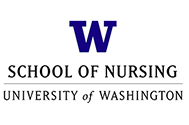
Specialties Offered:
Adult Gerontology Acute Care Nurse Practitioner, Adult Gerontology Primary Care Nurse Practitioner, Family Nurse Practitioner, Nurse-Midwifery, Pediatric Clinical Nurse Specialist, Pediatric Nurse Practitioner Acute Care, Pediatric Nurse Practitioner Primary Care, Population Health & Systems Leadership (PHSL), Psychiatric Mental Health Nurse Practitioner, and Women's Health Clinical Nurse SpecialistProgram Details:
If you are seeking one of the best accredited BSN to DNP programs in the U.S. and like the idea of learning at a school with a rich history of nursing education, the University of Washington could be an excellent choice for you. The UW School of Nursing is known for pioneering advanced nursing practice, having established the first Doctor of Nursing Practice program on the West Coast.Students in the University of Washington BSN to DNP program receive a top-notch education, learning from world-renowned, esteemed nursing faculty, scientists, and clinicians. As a student at UW, you may choose from ten different DNP specialty concentrations, depending on your preference of career path.
The University of Washington BSN to DNP programs are offered as full-time study only and can be completed in three years. Classes are completed in a hybrid format, with some classes presented in person and others offered through distance learning. During the first year, you must attend class on campus one day each week. In the second and third years of the program, you will participate in clinical training, in addition to required coursework.
The BSN to DNP program’s curriculum consists of 92 to 95 credit hours, depending on your chosen track. Clinical requirements are arranged close to your hometown, as often as possible, with approved clinical preceptors. You will also complete a DNP final project during the last year of your program, which is presented in the form of a final examination.
Interesting Highlights
• The University of Washington School of Nursing was the first nursing school in the Northwest region to offer a Population Health nursing degree, making it an excellent choice for BSN to DNP students who choose this concentration and who desire to learn at a school with proven success!• The University of Washington School of Nursing has been one of the top-ranked nursing schools in the nation since the first national survey of nursing schools was conducted, which means the university is an excellent option for anyone interested in pursuing a BSN to DNP degree program.
4. Ohio State University - Columbus, OH
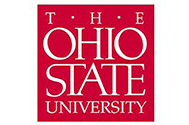
Specialties Offered:
Adult-Gerontology Acute Care Nurse Practitioner, Adult-Gerontology Primary Care Nurse Practitioner (AGPCNP), Adult-Gerontology Clinical Nurse Specialist, Family Nurse Practitioner, Neonatal Nurse Practitioner, Nurse-Midwifery, Primary Care Pediatric Nurse Practitioner, Acute Care Pediatric Nurse Practitioner, Psychiatric Mental Health Nurse Practitioner, and Women’s Health Nurse PractitionerProgram Details:
Ohio State University is home to another featured BSN to DNP bridge program. The university offers ten specialty concentrations for BSN to DNP students.The Family Nurse Practitioner option offers both distance learning and on-campus learning options. The Neonatal Nurse Practitioner and Psychiatric Mental Health Nurse Practitioner pathways are only offered as distance-learning options. All other specialties are only available through on-campus study. Students who choose an on-campus option must complete all specialty coursework in-person at the Columbus campus.
Each BSN to DNP pathway offers part-time and full-time study options. Part-time students typically graduate in five years. Full-time students can complete the program in four years.
The first year of the BSN to DNP program’s curriculum combines DNP clinical Expert coursework and MSN requirements, which leads to advanced practice eligibility. The final two years include DNP immersion experiences and a final project.
Students complete between 70 and 100 total credit hours, depending on their choice of specialty. All students also complete a minimum of 1,000 clinical practice hours. Clinicals consist of at least 500 DNP practicum hours and 500 hours of specialty-relevant experience.
Interesting Highlights
• The Ohio State University School of Nursing MSN and DNP programs are named among the premier graduate programs in the U.S. The 2023 rankings from U.S. News & World Report place the programs in the top tier of Best Graduate Schools in the nation, making it an excellent choice to pursue a BSN to DNP program.• Graduates of the Ohio State University DNP program have excellent certification exam pass rates.
• DNP graduates report being employed in their chosen specialty within six months of graduation.
5. Columbia University - New York, NY
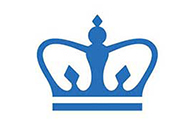
Specialties Offered:
Adult-Gerontology Acute Care Nurse Practitioner (AG-ACNP), Adult-Gerontology Primary Care Nurse Practitioner (AG-PCNP), Family Nurse Practitioner (FNP), Midwifery, Pediatric Primary Care Nurse Practitioner (PNP), Psychiatric Mental Health Nurse Practitioner (PMH) and Nurse AnesthesiaProgram Details:
Columbia University is home to another of our featured BSN to DNP programs. This post-BSN Doctor of Nursing Practice program is designed for baccalaureate-prepared registered nurses interested in advanced practice. The program is formatted for full-time attendance and can be completed in three years.The Columbia University BSN to DNP program prepares students as Advanced Practice Registered Nurses within their chosen specialty. The university offers Adult-Gerontology Acute Care NP, Adult-Gerontology Primary Care NP, Family Nurse Practitioner, Nurse-Midwifery, Pediatric Primary Care NP, Psychiatric Mental Health NP, and Nurse Anesthesia study options.
In the BSN to DNP program, students complete between 78 and 88 credit hours, depending on which concentration they choose. Students complete two years of coursework to complete degree requirements. Coursework for the curriculum includes lectures, simulations, clinicals, and a final intensive practicum.
Students in the BSN to DNP program graduate with the knowledge and skills necessary to provide comprehensive care to patients and serve as educators, leaders, and innovators in the profession. Upon completion of the program, graduates are eligible for state licensure and professional certification in their area of specialty.
Interesting Highlights
• The Columbia University Doctor of Nursing Practice program ranked #1 in the nation by U.S. News & World Report, two years in a row.• 100% of the DNP faculty at Columbia University’s DNP program are doctorally prepared, making them excellent sources of knowledge and guidance for students in the BSN to DNP program.
6. Rush University - Chicago, IL

Specialties Offered:
Adult-Gerontology Acute Care Clinical Nurse Specialist, Adult-Gerontology Acute Care Nurse Practitioner, Adult-Gerontology Primary Care Nurse Practitioner, Nurse Anesthesia, Family Nurse Practitioner, Neonatal Clinical Nurse Specialist, Neonatal Nurse Practitioner, Acute Care Pediatric Nurse Practitioner, Pediatric Clinical Nurse Specialist, Primary Care Pediatric Nurse Practitioner, Psychiatric-Mental Health Nurse Practitioner, and Advanced Public Health NursingProgram Details:
Rush University of Chicago offers another of the best BSN to DNP programs in the country. The university’s mission is to integrate scholarship, education, and nursing practice throughout diverse communities and to lead healthcare transformation. The university offers only graduate-level nursing programs, including master’s and doctoral programs.Students interested in the BSN to DNP program choose from twelve specialty concentrations upon which their plan of study is developed. The curriculum requires students to complete between 62 and 77 credit hours.
Each BSN to DNP program track includes a clinical component. The Advanced Public Health track requires 1,176 clinical hours and the Nurse Anesthesia track requires 2,520 clinical hours. All other tracks require a minimum of 1,006 clinical hours.
As a student in the Rush University BSN to DNP program, you will learn from world-renowned faculty known for their expertise in nursing education. The BSN to DNP program is designed to provide students with didactic and clinical experiences necessary to develop competencies relevant to their chosen specialty. Upon successful completion of the program, you will be well-prepared to sit for national certification examinations in your chosen specialty.
Interesting Highlights
• Rush University’s School of Nursing has been named one of the Best Grad Schools by U.S. News & World Report, making it an excellent choice for students who wish to further their education and careers through a BSN to DNP program.• The School of Nursing at Rush University typically has a total of $115,000 to provide between two and four scholarships to underrepresented minority male applicants, making it easier for some prospective students to achieve a BSN to DNP degree.
7. University of Pittsburgh - Pittsburgh, PA
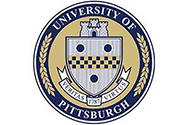
Specialties Offered:
Adult-Gerontology CNS, Nurse Anesthesia, Nurse-Midwife, Adult-Gerontology Acute Care Nurse Practitioner, Adult-Gerontology Primary Care Nurse Practitioner, Family (Individual Across the Lifespan) Nurse Practitioner, Neonatal Nurse Practitioner, Pediatric Primary Care Nurse Practitioner, and Psychiatric Mental Health Nurse PractitionerProgram Details:
Are you looking for a great BSN to DNP program offered by a school that is leading change and promoting good student outcomes? If so, the University of Pittsburgh could be the school for you.At the University of Pittsburgh, students in the BSN to DNP program learn to evaluate new approaches to nursing practice based on scientific knowledge and theories from nursing as well as other disciplines. As a student in the program, you are prepared to demonstrate analytical methods and clinical scholarship for evidence-based practice, analyze critical elements for the selection, use, and evaluation of healthcare information systems and technology, and lead interprofessional teams in complex practice and organizational issues.
The University of Pittsburgh offers BSN to DNP students several specialty options. The program is designed in an on-campus format, giving students the opportunity to learn face-to-face from experienced, dedicated faculty and alongside a small cohort of peers. Each BSN to DNP pathway is formatted to be completed in three years. However, some students may prolong the amount of time it takes to graduate by attending school part-time instead of full-time.
Students in the program complete between 78 and 99 credit hours, depending on which specialty concentration they pursue. Additionally, each BSN to DNP pathway has clinical requirements. Students complete a minimum of 1,000 clinical hours. Students in the Nurse Anesthesia pathway must administer 800 anesthetics and average more than 2,500 clinical hours.
Interesting Highlights
• The University of Pittsburgh School of Nursing has more than 85 full-time faculty, all of whom are doctorally-prepared. This means when you choose to pursue a BSN to DNP program at the university, you will learn from faculty with the highest possible nursing degrees who bring a diverse range of clinical experiences.• Many of the BSN to DNP specialties offered by the University of Pittsburgh School of Nursing rank in the top 10% nationwide. For example, the Family Nurse Practitioner and Nurse-Midwifery options are ranked as some of the best among Nursing Graduate Programs by U.S. News & World Report.
• Graduates of the BSN to DNP program offered at the University of Pittsburgh have excellent APRN certification pass rates.
8. University of Michigan - Ann Arbor, MI
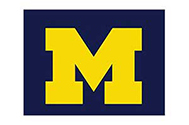
Specialties Offered:
Adult-Gerontology Acute Care Nurse Practitioner, Adult-Gerontology Primary Care Nurse Practitioner, Primary Care Family Nurse Practitioner, Nurse-Midwifery, Nurse-Midwifery / Primary Care Family Nurse Practitioner,Program Details:
The University of Michigan is one of the nation’s largest public research universities and offers one of the best BSN to DNP programs available. The program was designed to prepare nurses as expert leaders and clinicians within their chosen advanced practice specialties.As a student in the BSN to DNP program, you will be taught and mentored by nationally recognized nursing leaders who specialize in various nursing practice specialties, leadership, and nursing data analytics.
The University offers six BSN to DNP pathways. The Nurse-Midwifery/Family Nurse Practitioner dual program takes four years to complete. All other pathways have three- and four-year plans of study. Web-blended course offerings help you maintain a healthy work and life balance.
Each concentration includes master’s and DNP-level coursework and specialty-specific coursework. Students complete 72 and 100-credit hours. BSN to DNP students must also complete clinical requirements to be eligible for graduation. The number of clinical hours ranges between 1,064 and 1,570, depending on your specialty concentration. Unlike many other nursing programs, you are not responsible for arranging your own clinical placements. Instead, the university’s nursing faculty and staff work with you to determine your clinical interests and find placements best suited for your academic and career goals.
Interesting Highlights
• U.S. News & World Report ranks the University of Michigan as one of the Best Grad Schools for Doctor of Nursing Practice.• The 2023 U.S. News & World Report rankings list the University of Michigan’s Adult-Gerontology Primary Care Nurse Practitioner, Pediatric Primary Care Nurse Practitioner, and Family Primary Care Nurse Practitioner programs as some of the best in the country.
9. Vanderbilt University - Nashville, TN

Specialties Offered:
Adult Gerontology Acute Care Nurse Practitioner (AGACNP), Family Nurse Practitioner/Emergency Nurse Practitioner (FNP/ENP)Program Details:
If you’re looking for a BSN to DNP degree program at a school dedicated to preparing highly educated, success-ready DNP graduates, Vanderbilt University in Nashville, Tennessee, is worth considering. The university is dedicated to developing leaders in advanced nursing practice capable of bringing evidence-based knowledge into clinical practice.Vanderbilt University offers two pathways for baccalaureate-prepared registered nurses who wish to pursue its BSN to DNP program, the Adult-Gerontology Acute Care Nurse Practitioner track and the Family Nurse Practitioner/Emergency Nurse Practitioner track.
As a student in the program, which is one of the best accredited BSN to DNP programs in the nation, you will learn from actively practicing faculty dedicated to mentoring you in evidence-based knowledge. Students complete the program over the course of eight semesters. The curriculum is designed to integrate specialty courses with DNP coursework.
The Adult-Gerontology Acute Care Nurse Practitioner pathway consists of 69 credit hours and more than 1,000 clinical hours. Students in the Family Nurse Practitioner/Emergency Nurse Practitioner pathway complete 78 credit hours and a minimum of 1,000 clinical hours.
Students in the BSN to DNP program attend DNP intensives each semester. In the second year of the program, students in specialty courses meet on campus for block visits. Specialty-relevant clinical experiences and DNP practice hours are arranged and completed in your local region, as often as possible.
Interesting Highlights
• The Vanderbilt University is recognized by U.S. News & World Report for having the Best Grad School in three areas: Doctor of Nursing Practice, Nursing Administration DNP, and Nursing Leadership DNP.• Of the Vanderbilt University DNP program graduates who responded to post-graduation surveys, 100% report finding employment in their advanced practice specialty within six months of completing the program.
10. University of Utah - Salt Lake City, UT
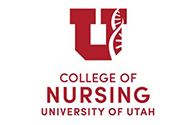
Specialties Offered:
Adult/Gerontology Acute Care, Dual Women's Health/Nurse-Midwifery, Neonatal, Nurse-Midwifery, Primary Care ( Adult/Gerontology, Family, & Pediatrics ), Psychiatric Mental Health, and Women's HealthProgram Details:
The University of Utah offers another excellent option for individuals seeking a BSN to DNP bridge program. The program is designed to prepare BSN-nurses for the highest level of professional practice, equipping them with the knowledge and skills necessary to drive innovation, apply best practices, and lead within complex healthcare systems.The BSN to DNP program is offered in a hybrid format and is designed to be completed in three years or eight semesters, including two summer semesters. Students engaged in distance learning complete courses through synchronous and asynchronous distance learning course delivery, on-campus visits, and clinical experiences in their home regions.
Students complete between 73 and 95 credit hours, depending on the choice of specialty concentration. Each specialty track also requires the completion of clinical practicum courses. All students complete a minimum of 1,000 clinical hours to earn the DNP degree. These clinical hours include direct and indirect patient care and leadership hours.
Interesting Highlights
• The University of Utah DNP program is ranked among the best DNP programs among public colleges in the United States by U.S. News & World Report.• Graduates of the BSN to DNP program have a nearly perfect APRN certification pass rate in their chosen specialties.
11. George Washington University - Washington, DC

Specialties Offered:
Adult-Gerontology Acute Care Nurse Practitioner, Adult-Gerontology Primary Care Nurse Practitioner, Family Nurse Practitioner, and Psychiatric Mental Health Nurse PractitionerProgram Details:
George Washington University offers one of the best BSN to DNP programs in the U.S. The DNP is a practice-focused doctoral program designed to prepare registered nurses as experts in advanced nursing practice.The BSN to DNP program boasts of nationally recognized faculty who remain actively engaged in practice. The program is delivered in a hybrid format. Students participate in online courses as well as some on-campus experiences involving training and testing.
As a student in the BSN to DNP program at George Washington University, you may choose from four specialty concentration options upon which your studies will focus. The Adult-Gerontology Acute Care, Adult-Gerontology Primary Care, and Family Nurse Practitioner pathways consist of a 72-credit hour curriculum. Students who choose the Psychiatric Mental Health Nurse Practitioner option complete 74 credit hours.
During on-campus visits, students have access to George Washington University’s one-of-a-kind simulation lab. The simulation space offers an Objective Structured Clinical Exam space where students practice hands-on skills, cultivate evidence-based practices, and learn ways to improve patient outcomes. These experiences prepare students for clinical practicum and DNP practicum assignments. All BSN to DNP plans of study include a minimum of 1,000 clinical hours.
Interesting Highlights
• George Washington University’s DNP Adult-Gerontology Acute Care NP, DNP Adult-Gerontology Primary Care NP, and DNP Family NP programs are ranked as some of the best Doctor of Nursing Practice programs by U.S. News & World Report.• DNP faculty at George Washington University are nationally renowned for their practice and research experience, which means students in the BSN to DNP program learn from some of the best nurses in the industry.
12. University of Illinois Chicago - Chicago, IL
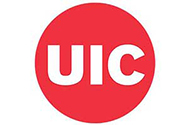
Specialties Offered:
Adult-Gerontology Acute Care Nurse Practitioner, Adult-Gerontology Primary Care Nurse Practitioner, Family Nurse Practitioner, Neonatal Nurse Practitioner, Nurse-Midwifery, Nurse-Midwifery/ Women’s Health Nurse Practitioner, Pediatric Nurse Practitioner – Acute Care, Pediatric Nurse Practitioner – Primary Care, Psychiatric-Mental Health Nurse Practitioner, Women’s Health Nurse Practitioner, and Advanced Population Health Nursing and Health Systems Leadership NursingProgram Details:
If you are searching for a BSN to DNP degree program with several options for specialty certification, the University of Illinois at Chicago could have what you’re looking for.Students in the University of Illinois Chicago BSN to DNP program learn to translate science to influence healthcare policy, implement evidence-based practices to reduce health disparities and optimize healthcare outcomes, and combine technology and nursing practice skills to improve the quality and accessibility of patient care.
The BSN to DNP program is offered in a hybrid format which consists of online, on-site, and blended coursework. The program culminates with a DNP project. You have the option of enrolling as a part-time or full-time student. Baccalaureate-prepared registered nurses entering the program typically graduate in three to five years. The total amount varies, depending on enrolment status and the number of transferrable credits.
Whether you want to provide care to families across the lifespan, focus on women’s health, pediatric care or have an interest in population health or health systems leadership, you are sure to find a program that fits your personal goals. In fact, the University of Illinois offers 12 focus areas, ten advanced practice roles and two systems-focused roles, for DNP students to choose from.
The BSN to DNP program curriculum includes 66-95 credit hours of coursework, which varies based on your chosen specialty concentration. Each pathway includes a curriculum that consists of 25 credits of core coursework and 18-20 credits of APRN core courses. The remaining credits are earned through specialty-specific courses.
Interesting Highlights
• Graduates of the BSN to DNP program at the University of Illinois at Chicago have outstanding pass rates for APRN certification exams.• The Doctor of Nursing Practice program offered at the University of Illinois-Chicago is ranked as one of the best DNP programs in the nation by U.S. News & World Report.
13. University of South Alabama - Mobile, AL
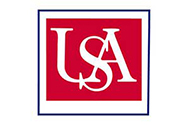
Specialties Offered:
Adult-Gerontological Acute Care Nurse Practitioner, Adult-Gerontological Primary Care Nurse Practitioner, Adult-Gerontological Clinical Nurse Specialist, Dual Role (Family NP/Adult-Gerontological Acute Care NP), Dual Role (Family NP/Emergency NP), Executive Nursing Administration, Family Nurse Practitioner, Neonatal Nurse Practitioner, Nursing Informatics, Pediatric Acute Care Nurse Practitioner, Pediatric Primary Care Nurse Practitioner, Psychiatric Mental Health Nurse Practitioner, and Women's Health Nurse PractitionerProgram Details:
If you are a registered nurse with a bachelor’s degree in nursing who wants to earn both a master’s and a doctorate in nursing, the University of South Alabama offers one of the best BSN to DNP programs with that option. The program can be completed in ten semesters of full-time study or twelve semesters of part-time study.The BSN to DNP pathway consists of a 69 to 87-credit-hour curriculum, which is based on your concentration focus. Coursework is offered online. However, students are required to come to campus periodically to begin the clinical portion of their program. On-campus experiences include intensive classroom, simulation, and evaluation sessions.
All specialty tracks within the BSN to DNP program include a clinical practice component. Advisors assist students in locating appropriate clinical practice sites close to their home communities, when possible. However, if an agency in your home community is not available, you may have to travel to another area to complete the required clinical experiences.
In lieu of a thesis or dissertation, students in the BSN to DNP program must complete a major synthesis project. The project is completed as part of the DNP Residency courses. Students complete the synthesis project in their home region with pre-approved mentors.
Interesting Highlights
• U.S. News & World Report ranks the DNP Family Nurse Practitioner program at the University of South Alabama as one of the best FNP programs nationwide.• Graduates of the University of South Alabama Adult-Gerontology Acute Care NP, Family NP, Neonatal NP, and Nurse-Midwifery DNP pathways consistently score exceptionally on certification examinations.
14. University of North Carolina - Chapel Hill, NC

Specialties Offered:
Adult-Gerontology Primary Care Nurse Practitioner, Family Nurse Practitioner, Health Care Leadership and Administration, Pediatric Nurse Practitioner-Primary Care and Psychiatric-Mental Health Nurse PractitionerProgram Details:
The BSN to DNP bridge program at the University of North Carolina is another excellent option for nurses who wish to pursue a Doctor of Nursing Practice degree. The program is offered in an online or hybrid format, depending on which path of study you choose to pursue. All students must commit to three years of full-time study to complete the program.The BSN to DNP curriculum requires students to complete between 66 and 75 credit hours. The total credit hours include 1,000 clinical practice hours, advanced practice coursework, leadership and practice-based inquiry, and completion of a DNP project.
At the University of South Carolina, you can choose from Adult-Gerontology Primary Care Nurse Practitioner, Family Nurse Practitioner, Pediatric Nurse Practitioner-Primary Care, and Psychiatric Mental Health Nurse Practitioner options. If you prefer an administrative role, there is a Health Care Leadership and Administration DNP option.
Additionally, if you have an interest in oncology nursing, you can apply to the Adult-Gerontology Primary Care Nurse Practitioner pathway, complete four additional credits of coursework and oncology-focused clinical hours. Students interested in the A-GPCNP with Oncology Focus may pursue certification as an Advanced Oncology Certified Nurse Practitioner.
Interesting Highlights
• The University of South Carolina DNP program is ranked among the best DNP programs for Mental Health, Family Nurse Practitioner, and Nursing Administration by U.S. News & World Report.• DNP program faculty at the University of South Carolina remain in active practice in a wide variety of specialties and healthcare facilities. The continued clinical practice of faculty members means students learn from instructors who remain competent and trained in their specialties, making this BSN to DNP program an excellent option.
15. University of Maryland - Baltimore, MD

Specialties Offered:
Adult-Gerontology Acute Care Nurse Practitioner / Adult-Gerontology Clinical Nurse Specialist, Adult-Gerontology Primary Care Nurse Practitioner, Family Nurse Practitioner, Neonatal Nurse Practitioner, Nurse Anesthesia, Pediatric Acute Care Nurse Practitioner, Pediatric Primary Care Nurse Practitioner, and Psychiatric Mental Health Nurse PractitionerProgram Details:
At the University of Maryland, you will find another featured BSN to DNP degree program. This terminal nursing degree program allows you to remain in direct patient care, utilizing graduate-level knowledge and training to be an effective leader in nursing. A hybrid learning format gives students the opportunity to maximize time spent learning while continuing to maintain their personal and professional lives.The University of Maryland BSN to DNP program prepares students to use advances in scientific research to improve patient outcomes. Program graduates possess organizational, economic, clinical, and leadership skills necessary to positively influence healthcare outcomes. With specialty concentrations including Adult-Gerontology and Pediatric Primary or Acute Care, Neonatal, Psychiatric, and Family Nurse Practitioner, as well as Clinical Nurse Specialist, Nurse Anesthesia, there is something for everyone.
The Nurse Anesthesia pathway is a full-time, three-year program. All other BSN to DNP pathways are offered in three-, four-, or five-year study plans. The curriculum is designed to offer students an immersive education focused on evidence-based practice, systems leadership, and quality improvement.
Students in the BSN to DNP program complete between 80 and 93 credit hours, depending on which specialty concentration they choose. Each specialty concentration includes a clinical component during which students complete a minimum of 1,068 clinical hours.
Interesting Highlights
• The University of Maryland BSN to DNP program boasts a 96% retention rate. This is an excellent point as schools with high retention rates are associated with higher-quality education and positive student outcomes.• The U.S. News & World Report ranks the University of Maryland nursing school among the top graduate schools in the nation for offering an excellent DNP program.
16. University of Alabama - Birmingham, AL
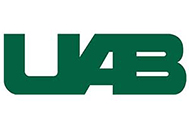
Specialties Offered:
Family Nurse Practitioner, Adult-Gerontology Primary Care Nurse Practitioner, Adult-Gerontology Acute Care Nurse Practitioner, Psychiatric/Mental Health Nurse Practitioner, Pediatric Primary Care Nurse Practitioner, Pediatric Acute Care Nurse Practitioner, Neonatal Nurse Practitioner, Women’s Health Care Nurse Practitioner, and Nurse AnesthesiaProgram Details:
The University of Alabama at Birmingham offers another of our featured best BSN to DNP programs in the nation. The program offers a pathway for baccalaureate-prepared registered nurses to become nurse clinicians, leaders, administrators, and move into advanced practice roles such as nurse practitioners.The program is offered in a part-time, distance-based learning format, which makes it possible for nurses to continue working while pursuing the Doctor of Nursing Practice degree. Students can graduate from the BSN to DNP program with any specialty concentration in as few as nine semesters of study.
The BSN to DNP program combines the DNP core curriculum with advanced practice core courses and specialty courses that include didactic and clinical practicum experiences. Students who choose the Nurse Anesthesia option complete at least 114 credit hours. All other specialty concentrations have a curriculum plan that consists of 79 credit hours. Students in each specialty complete a minimum of 1,000 clinical practice hours.
Interesting Highlights
• Graduates of the University of Alabama-Birmingham BSN to DNP program report full-time employment in their chosen specialty within six months of graduation and certification.• The University of Alabama at Birmingham’s Nurse Anesthesia pathway boasts a 100% retention rate, excellent certification examination pass rates and job placement rates for graduates, making it an excellent choice for BSN to DNP students who wish to pursue a specialty in Nurse Anesthesia.
17. University of Cincinnati - Cincinnati, OH

Specialties Offered:
Adult-Gerontology Acute Care, Adult-Gerontology Primary Care, Family Nurse Practitioner, Nurse Anesthesia, Pediatric Acute Care, Psychiatric-Mental Health, Public Health, and Systems LeadershipProgram Details:
The University of Cincinnati offers a BSN to DNP degree program designed for bachelors-prepared registered nurses with verifiable clinical nursing experience as a registered nurse. The amount of experience required varies depending on the specialty program.The program provides students with both master’s and doctorate nursing degrees in an abbreviated time. Students who progress without interruption can anticipate graduating with a DNP in their chosen specialty in three years.
Students attend a two-day orientation during their first semester. After orientation, the program is designed in a hybrid format with students completing coursework online and attending in-person clinicals at designated clinical sites. All students must visit the campus during their final semester to defend their DNP project.
Students in this accredited BSN to DNP program learn to use evidence-based practices in patient care delivery and to serve as leaders in nursing within healthcare systems and academic settings. The university offers eight specialty concentrations. The curriculum consists of 75 to 82 credit hours and clinical practicum experiences.
Students in each concentration complete the same core DNP coursework plus specialty-relevant coursework and clinical practice hours.
Interesting Highlights
• The University of Cincinnati offers students opportunities to study abroad. Students in the BSN to DNP program may travel to destinations such as India, Ecuador, Tanzania, and the United Kingdom. The goal of the international program is to help students become responsible world citizens while enhancing cultural competency and addressing the challenges of global health issues and disparities.• Another unique feature offered by the University of Cincinnati School of Nursing is the Dedicated Education Units. Through partnerships with local health organizations, the university offers students clinical experiences where they are paired with staff nurses at affiliated facilities. They work with their DEU partner throughout the semester, giving them an up-close look at how nurses practice in real settings.
18. Emory University - Atlanta, GA
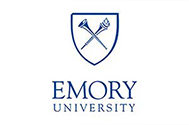
Specialties Offered:
Adult-Gerontology: Acute Care Nurse Practitioner, Adult Gerontology: Primary Care Nurse Practitioner, Emergency Nurse Practitioner, Family Nurse Practitioner, Pediatric Acute Care Nurse Practitioner, Pediatric Primary Care Nurse Practitioner, Psychiatric Mental Health, Nurse Anesthesia, and Women’s Health-Gender Related Nurse PractitionerProgram Details:
The BSN to DNP bridge program at Emory University offers a world-class education preparing students to work at the forefront of an ever-evolving healthcare landscape. Students can earn a Doctor of Nursing Practice in seven to nine semesters. The amount of time it takes to complete depends on whether you enroll part-time or full-time and your chosen specialty.The university offers this program in online and on-campus formats, which vary depending on your chosen concentration. The Nurse Anesthesia and Family-Emergency Nurse Practitioner tracks are designed for on-campus learning and are only offered in a full-time study plan. All other tracks have part-time or full-time study options and include online coursework with in-person clinical intensives.
All prospective students should have a minimum of one year of clinical nursing experience. If you are interested in the Adult-Gerontology Acute Care Nurse Practitioner track, you must have one year of professional RN experience working in an acute/critical care setting. Family-Emergency Nurse Practitioner applicants must have at least two years of professional experience as a registered nurse in an emergency department.
The curriculum plan for the Nurse Anesthesia option includes 89 credit hours and 2,562.5 clinical hours. The Family/Emergency Nurse Practitioner track consists of 83 credit hours, and all other tracks include 74 credit hours. Except for the Nurse Anesthesia pathway, each pathway requires students to complete 1,140 clinical hours. Students in every concentration complete 120 hours dedicated to the DNP Scholarly Project.
Interesting Highlights
• The Emory University is recognized by U.S. News & World Report as one of the best DNP programs in the nation, making it a great option for registered nurses seeking a BSN to DNP program option.• Emory University’s BSN to DNP faculty are nationally renowned, which means you will learn from some of the brightest, most experienced nursing instructors in the country.
19. University of Kentucky - Lexington, KY
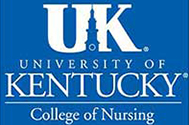
Specialties Offered:
Adult Gerontology Acute Care Nurse Practitioner, Family Nurse Practitioner, Pediatric Acute Care Nurse Practitioner, Pediatric Primary Care Nurse Practitioner, Psychiatric-Mental Health Nurse Practitioner, and Executive Leadership in Health CareProgram Details:
The University of Kentucky offers one of the best BSN to DNP programs we have found. The program is offered in a hybrid immersion format. In addition to online didactic work, students attend campus for up to six days each semester for lab simulations and face-to-face encounters with faculty. Although part-time and modified schedules are available in some circumstances, the program is ideally designed to be completed in three years of full-time study.The program is comprised of six specialty options. The curriculum includes DNP core coursework, specialty-related courses, and clinical experiences. Students complete between 67 and 77 total credit hours and participate in a minimum of 1,020 clinical hours.
This accredited BSN to DNP program prepares DNP nurses as expert clinicians and clinical leaders. Upon graduation, you will be proficient in applying new knowledge developed by nurse researchers and scientists. Graduates of this program are experts in designing, implementing, and evaluating healthcare delivery systems and leading other nursing professionals at high clinical and executive ranks.
Interesting Highlights
• The University of Kentucky has a long history of Doctoral nursing education, as it is home to the first Doctor of Nursing Practice program in the country.• The University of Kentucky is recognized as a Center of Excellence for Nursing Education by the National League of Nursing.
• 17 DNP faculty members are Fellows of the American Academy of Nursing.
20. Texas Christian University - Fort Worth, TX
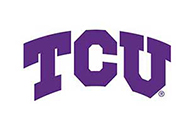
Specialties Offered:
Adult-Gerontology Acute Care Nurse Practitioner (AGACNP), Family Nurse Practitioner (FNP), Psychiatric Mental Health Nurse Practitioner (PMHNP), Clinical Nurse Specialist (CNS) (Adult-Gerontology or Pediatric Tracks), and Nurse AnesthesiaProgram Details:
The BSN to DNP degree program at Texas Christian University is a practice doctorate designed to prepare registered nurses for roles in advanced practice. The program can be completed in three years of full-time study or four years part-time.Interested candidates must meet admission criteria, which includes work experience. The Family Nurse Practitioner, Psychiatric Mental health Nurse Practitioner and Clinical Nurse Specialist options require a minimum of one year of full-time experience as a registered nurse. If the Adult-Gerontology Acute Care Nurse Practitioner option interests you, you will need two years of full-time experience as an RN in an acute care setting.
All didactic coursework for the BSN to DNP program is offered in an online format. Students attend a two-day orientation at the beginning of the program and must participate in clinical training and skills assessments during on-campus intensives. Intensives are scheduled at various times throughout the program.
Students complete 66 to 68 credits of coursework and earn at least 1,000 clinical hours. The first year of the program is dedicated to didactic coursework which provides core knowledge and skills relevant to the doctorally-prepared advanced practice registered nurse. The second and third years of the program encompass didactic/clinical population-focused courses and completion of clinical practice and final project requirements.
Interesting Highlights
• U.S. News & World Report ranks Texas Christian University among the best nursing schools in the nation for its Doctor of Nursing Practice program.• Texas Christian University offers several study abroad options, giving students like those in the BSN to DNP program, the opportunity to learn about health disparities and issues from a worldview.
21. University of Missouri-Columbia - Columbia, MO
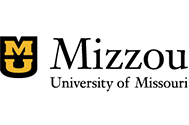
Specialties Offered:
Adult-Gerontology Clinical Nurse Specialist, Family Nurse Practitioner, Psychiatric Mental Health Nurse Practitioner (Across the Lifespan), Pediatric Nurse Practitioner- Primary Care, Pediatric Clinical Nurse Specialist, and Nursing Leadership & Innovations in Health CareProgram Details:
At the University of Missouri-Columbia, you will find another outstanding BSN to DNP bridge program. The program, which is delivered in a convenient, online format is designed to be completed in four to five years, depending on whether you attend school part-time or full-time.The School of Nursing offers the BSN to DNP program with several options for specialized focus of study, including Adult-Gerontology, Family, Pediatric, Psychiatric Mental Health nurse practitioner pathways and a Nursing Leadership & Innovations in Healthcare study plan. Students complete 72 to 75 credit hours of coursework to complete the degree. The number of credit hours required of each student is dependent upon the chosen emphasis area. Progression through the program is contingent upon students maintaining a cumulative grade point average of at least 3.0.
As a student in the University of Missouri BSN to DNP program, you will complete at least 1,000 clinical hours as part of your curriculum. Clinical hours are planned with your chosen concentration in mind and must be approved by the faculty.
All BSN to DNP students participate in a DNP Residency Project. The DNP Residency project is a scholarly experience that provides evidence of the student’s ability to apply research principles and critical thinking. It is designed to reflect the culmination of knowledge and skills the student develops during the program.
Upon completion of the program, you will be prepared to serve as an effective leader in nursing while collaborating with the interdisciplinary team and appraising scientific data to translate best evidence into healthcare delivery and nursing practices. You will have the skills necessary to analyze multiple components of health as an advocate to reduce health disparities and improve health outcomes for patients and populations.
Interesting Highlights
• The University of Missouri-Columbia BSN to DNP program is consistently recognized by U.S. News & World Report as one of the best Doctor of Nursing Practice programs in the United States.• The BSN to DNP program at the University of Missouri-Columbia is one of the most affordable in the country.
22. University of Texas Health Sciences Center - San Antonio, TX
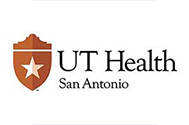
Specialties Offered:
Acute Care Nurse Practitioner (AG-ACNP), Family Nurse Practitioner (FNP), Pediatric Nurse Practitioner - Primary Care (PNP-PC), Psychiatric Mental Health Nurse Practitioner (PMHNP), and Public HealthProgram Details:
Another of our featured best BSN to DNP programs is located at the University of Texas Health Sciences Center. The program is designed to prepare students for clinical practice and leadership roles. The university offers five specialty practice areas to choose from to focus DNP studies.Students learn through a hybrid format that combines online didactic work, in-person simulations, and face-to-face clinical experiences. Full-time students who progress through the program successfully can graduate in three years.
The DNP curriculum at the University of Texas HSC is second to none, emphasizing core leadership courses in health informatics, financial and business management, scientific inquiry, population health, and advanced specialty clinical practices. The university offers a Center for Clinical Simulation Innovation and has more than 400 clinical contracts offering students a broad range of learning opportunities and of clinical experiences.
Interesting Highlights
• The University of Texas Health DNP program has a 100% retention rate, which indicates student satisfaction and success, qualities that make the program appealing.• 100% of responding graduates of the BSN to DNP program report full-time employment within their chosen specialty within six months of graduation.
• The University of Texas HSC is ranked as one of the Best Graduate Schools for Doctor of Nursing Practice programs by U.S. News & World Report.
23. Georgetown University - Washington, DC
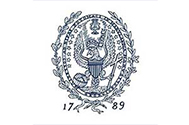
Specialties Offered:
Adult Gerontology Acute Care Nurse Practitioner (AG-ACNP), Family Nurse Practitioner (FNP), Dual Nurse-Midwifery/Women’s Health Nurse Practitioner (NM/WHNP), Women’s Health Nurse Practitioner (WHNP), and Nurse AnesthesiaProgram Details:
The CCNE-accredited BSN to DNP degree program at Georgetown University integrates organizational leadership, ethics, and advanced nursing science to prepare students for roles as advanced practice DNPs. The program, which is designed for baccalaureate registered nurses offers part-time and full-time plans of study. Part-time students complete eleven 15-week terms and full-time students complete eight. Full-time students can anticipate graduating in 33 months.At Georgetown University, prospective BSN to DNP students can choose from four nurse practitioner specialties or a Nurse Anesthesia specialty. As a student in the Georgetown BSN to DNP program, you will complete both master’s and doctoral coursework, preparing for APRN certification in your chosen specialty.
Students complete between 69 and 74 credits, participate in two or three objective clinical intensives, and earn between 1,000 and 1,200 hours of hands-on clinical experience. The number of credits and required clinical intensives vary, depending on the pathway you choose to pursue.
In this program, you will refine clinical and leadership techniques by participating in high-fidelity simulations through the Objective Clinical Intensives (OCIs). OCIs are academic visits that include working with genitourinary teaching associates and standardized patients. You will gain direct patient-care experiences in various clinical placements under the direction of skilled nurse preceptors. Clinicals are designed to align with your specialization and are offered within a reasonable distance of your home community, as often as possible.
Interesting Highlights
• The Georgetown University is recognized as a Center of Excellence for Nursing Education by the National League for Nursing, making it an excellent choice for prospective BSN to DNP students.• Georgetown University’s BSN to DNP program is represented by nationally recognized faculty known for teaching excellence. Faculty are dedicated and actively involved in high-level research, scholarship, and instruction.
24. University of Wisconsin-Madison - Madison, WI
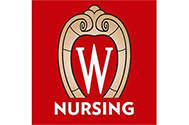
Specialties Offered:
Adult/Gerontology Clinical Nurse Specialist, Adult/Gerontology Acute Care Nurse Practitioner, Adult/Gerontology Primary Care Nurse Practitioner, Pediatric Primary Care Nurse Practitioner, Psychiatric-Mental Health Nurse Practitioner, Population Health, and Systems Leadership & InnovationProgram Details:
If you want to pursue a BSN to DNP bridge program that offers resources from a supportive medication community and a large university, the University of Wisconsin-Madison could be a great choice for you. The program offers options for online or hybrid learning, depending on your specialty focus. These learning formats allow most students to continue working while pursuing their degrees. Students progress through the program with a small class of peers and a cohort model of instruction, which supports personalized mentorship, the development of faculty and peer relationships, and a rigorous education.The university offers students the opportunity to choose one of seven specialty focus areas preparing for careers as clinical nurse specialists, nurse educators, population health providers, systems-level health leaders, and nurse practitioners. As a student in the University of Wisconsin BSN to DNP program, you will learn from faculty with years of experience in various fields, allowing for a rich diversity of perspectives.
The DNP curriculum, which includes 71-75 credit hours, focuses on areas including practical leadership, systems thinking, applied scholarship, and the knowledge and skills necessary for graduates to practice at the doctoral level of nursing. Students engage in clinical experiences in various areas facilitated by community and clinical partners, earning a minimum of 1,000 clinical practice hours. Clinical experiences allow for interdisciplinary education and diversity of experiences relevant to your chosen path.
Interesting Highlights
• Graduates of the University of Wisconsin BSN to DNP program have consistent records of success, as reflected in exceptional pass rates for all APRN certifications.• All BSN to DNP faculty are doctorally-prepared nurses, which means you will learn from well-qualified instructors, ready to prepare you for advanced practice roles.
25. University of Iowa - Iowa City, IA
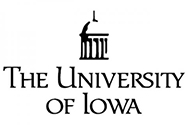
Specialties Offered:
Adult Gerontology Acute Care Nurse Practitioner, Adult Gerontology Primary Care Nurse Practitioner, Family Nurse Practitioner, Health Systems, Nurse Anesthetist, Pediatric Nurse Practitioner - Acute Care, Pediatric Nurse Practitioner - Primary Care, and Psychiatric Mental Health Nurse PractitionerProgram Details:
The University of Iowa recognizes the demand for nursing professionals with the knowledge and skills to provide the highest-quality care for patients. It offers one of the best BSN to DNP programs to help meet those needs. The program offers flexible course offerings in online or hybrid formats, and arranged practicum experiences with pre-approved preceptors, making the transition from working nurse to doctoral student easier.The University offers several BSN to DNP pathways, including some BSN to DNP dual certification options. The Nurse Anesthetist pathway is designed in a three-year format. All other pathways have three-and four-year plans, allowing you to choose part-time or full-time study. Clinical practicums, which are a required component of the program, are arranged by the College of Nursing.
The curriculum requirements vary based on your chosen specialty concentration and the number of transferrable credits from previous coursework. Most programs require students to complete 75 to 85 credits and 1,000 to 1,090 clinical hours. The exceptions are the Health Systems/Administration pathway which consists of 45 credit hours and 640 practicum hours and the Nurse Anesthesia pathway which includes 80 credit hours and 3,270 clinical hours.
Upon completion of the BSN to DNP program at the University of Iowa, you will successfully utilize scientific underpinnings for nursing practice, evaluate analytic methods and clinical scholarship for evidence-based practice, and demonstrate expertise in advanced nursing practice.
Interesting Highlights
• Graduates of each BSN to DNP bridge program pathway report employment in their chosen field within three months of graduation from the program.• Program graduates have excellent pass rates on specialty-specific certification examinations, which indicates students are well prepared for their roles after graduation.
26. Rutgers University - Newark, NJ

Specialties Offered:
Adult-Gerontology Acute Care Nurse Practitioner, Adult-Gerontology Primary Care Nurse Practitioner, Family Nurse Practitioner, Family Nurse Practitioner in Emergency Care, Pediatric Primary Care Nurse Practitioner, Dual Pediatric Primary/Acute Care Nurse Practitioner, Psychiatric-Mental Health Nurse Practitioner, Nurse Anesthesia, Nursing Leadership, Women’s Health Nurse Practitioner, Nurse Midwifery, and Dual Women’s Health/Nurse MidwiferyProgram Details:
Rutgers University is home to another of our featured BSN to DNP degree programs. Students can complete a post-baccalaureate Doctor of Nursing Practice in three to five years, depending on their chosen specialty focus and enrollment status (part-time or full-time).With twelve specialty focus areas, DNP students can choose to pursue their passion in nursing. The Nurse Anesthesia specialization is a three-year program with a curriculum that consists of 85 credit hours and more than 2,800 clinical practice hours. All other pathways include a curriculum of 60 to 85 credit hours and a minimum of 1,000 clinical hours. Those pathways offer four- and five-year plans of study.
The Rutgers BSN to DNP program is represented by nationally recognized faculty. Several faculty members are known for their contributions to nursing research and are published authors. Students in the program benefit from available faculty who make it their mission to help students succeed.
Interesting Highlights
• Rutgers University is ranked as one of the Best Graduate Schools for Doctor of Nursing Practice by U.S. News & World Report.• Several School of Nursing faculty members at Rutgers University are members of the Class of Fellows by the American Academy of Nursing, a distinguished honor reflecting professional leadership and excellence in practice.
27. University of Minnesota - Minneapolis, MN
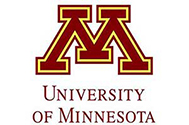
Specialties Offered:
Adult Gerontological Primary Care Nurse Practitioner, Adult/Gerontological Clinical Nurse Specialist, Family Nurse Practitioner, Health Innovation & Leadership, Integrative Health & Healing, Nurse Anesthesia, Nurse Midwifery, Nursing Informatics, Pediatric Clinical Nurse Specialist, Pediatric Nurse Practitioner Primary Care, Psychiatric/Mental Health Nurse Practitioner, and Women's Health/Gender-Related Nurse PractitionerProgram Details:
The University of Minnesota is home to another excellent BSN to DNP bridge program. This accredited, post-baccalaureate program is designed for full-time study and can be completed in three years. The program is formatted for online learning with some on-campus sessions. All DNP students come to campus for a four-day session each semester.The BSN to DNP program curriculum consists of master’s- and doctoral-level core classes and specialty-specific coursework. Most programs include 67 to 84 credit hours and 1,000 to 1,100 total practicum hours. The Nurse Anesthesia option is the most course-dense and clinical-heavy pathway. Students who choose this pathway must earn a minimum of 100 credit hours and complete 3,360 practicum hours. Additionally, students in each pathway complete 160 hours dedicated to the DNP scholarly project.
Upon completion of the BSN to DNP program, you will be prepared to provide high-quality, culturally sensitive and evidence-based advanced nursing care. You will have the skills necessary to translate science into practice through planning, implementation, and evaluation of interventions, improving health outcomes for patients, families, communities, and populations.
Interesting Highlights
• The University of Minnesota DNP program has been consistently recognized and ranked as one of the top Doctor of Nursing Practice programs in the nation by U.S. News & World Report.• In the University of Minnesota's BSN to DNP program, students learn from nationally and internationally renowned faculty known for their practice expertise, research discoveries, and leadership.
28. New York University - New York, NY
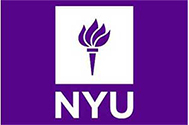
Specialties Offered:
Adult-Gerontology Acute Care NP, Adult-Gerontology Primary Care NP, Family NP, Psychiatric-Mental Health NP, and Pediatric NPProgram Details:
New York University’s Rory Meyers School of Nursing is home to another of the best BSN to DNP bridge programs in the nation. Students can pursue a Doctor of Nursing practice part-time in a hybrid format, combining online learning with face-to-face encounters once monthly.The DNP program’s curriculum utilizes the research and clinical experience of NYU nursing faculty in several areas. Faculty are experienced in gerontology, infectious disease/global public health, chronic disease prevention & management, translational research, quality improvement, and workforce strategy & capacity, which means the university can capitalize on their knowledge and skills to improve student outcomes.
The post-BSN to DNP program begins with a combination of graduate-level advanced practice nursing courses and DNP core coursework. As you transition into the advanced leadership component of the program, you will integrate clinical practice experiences.
Interesting Highlights
• New York University promotes diversity and inclusion, recruiting students from around the country and the world for its nursing programs, like the BSN to DNP program.• The NYU-Rory Meyers School of Nursing offers a new elective course focused on LGBTQ+ health to help students better prepare to provide inclusive, culturally affirming care to the LGBTQ+ community, giving BSN to DNP students insight into the unique issues faced by this community.
29. University of Virginia - Charlottesville, VA
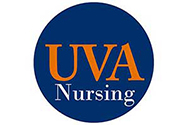
Specialties Offered:
Adult-Gerontology Acute Care CNS, Adult-Gerontology Acute Care NP, Family NP, Neonatal NP, Pediatric NP: Acute Care, Pediatric NP: Primary Care, and Psychiatric-Mental Health NPProgram Details:
The University of Virginia offers a BSN to DNP degree program that allows registered nurses with a Bachelor of Science in Nursing to complete MSN coursework and transition seamlessly to a Doctor of Nursing Practice. The program is available to baccalaureate-prepared RNs with at least two years of full-time clinical experience before entering the program.Students complete the program in different timeframes, depending on several factors, including choosing part-time or full-time enrollment, the number of practicum hours needed for their chosen specialty, and the amount of time it takes to complete the final DNP scholarly project. However, in most cases, full-time students can complete the DNP pathway in 33 months. If you choose the combined Nurse Practitioner and Adult-Gerontology Acute Care Clinical Nurse Specialist path, the program usually lasts three years. Part-time students can graduate in five to six years.
The traditional BSN to DNP program curriculum plan involves two years of master’s level coursework and two years of DNP coursework. Accelerated three-year study plans are available with approval from the program director. Per guidelines set forth by the American Academy of Colleges of Nursing DNP Essentials, all DNP students must complete a minimum of 1,000 hours of post-baccalaureate precepted clinical experiences relevant to their specialty area.
Interesting Highlights
• U.S. News & World Report has ranked the University of Virginia’s DNP program as one of the best public Doctor of Nursing Practice programs for its 2023 report.• The DNP program at the University of Virginia consistently ranks in the top 2% of nursing graduate programs nationwide by U.S. News & World Report.
30. University of Tennessee- Health Science Center - Memphis, TN
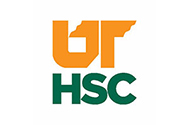
Specialties Offered:
Adult Gerontology Acute Care Nurse Practitioner, Family Nurse Practitioner, Psychiatric Mental Health Nurse Practitioner, Nurse Anesthesiology, Pediatric Primary Care Nurse Practitioner, Pediatric Acute Care Nurse Practitioner, Neonatal Nurse Practitioner, Nurse Midwifery, Adult-Gerontology Acute Care/Family Nurse Practitioner, Psychiatric Mental Health/Family Nurse Practitioner, and Pediatric Acute Care/Pediatric Primary Care Nurse PractitionerProgram Details:
The University of Tennessee Health Science Center BSN to DNP bridge program offers registered nurses with a Bachelor of Science in nursing the chance to achieve the highest level of clinical nursing practice. The program is offered with part-time and full-time study options, depending on which specialty concentration students choose to pursue.Most DNP core courses are offered via distance learning except for the Nurse Anesthesia pathway, which is offered primarily in a traditional classroom setting. Students in all specializations participate in limited on-campus activities including skills workshops, interprofessional experiences, and simulations.
The BSN to DNP program curriculum consists of 50 to 100 credit hours, based on your specialty focus. Students who choose to pursue the Nurse Anesthesiology specialty begin clinicals in their fifth term while completing didactic coursework. The final four semesters of the Nurse Anesthesia path consist of full-time preceptor-supervised clinical education. All other specialties complete 1,000 to 1,200 clinical hours, relevant to their chosen concentration.
Once you complete the program requirements, you will be able to demonstrate clinical reasoning for advanced practice nursing and use evidence-based practice and research to improve patient and population outcomes. Graduates of the University of Tennessee Health Science Center BSN to DNP program are effective advocates for equity and social justice, using strategic initiatives to influence health policy, and integrate concepts related to social determinants of ethics, epidemiology, and health to improve population health.
Interesting Highlights
• According to the University of Tennessee Health Science Center’s Office of Financial Aid, nearly 100% of DNP students receive scholarships to help offset the cost of the program. More than $1.5 million is awarded in scholarships annually.• U.S. News & World Report ranked the University of Tennessee HSC’s Doctor of Nursing Practice program among the best in the nation.
31. University of Texas Health Science Center - Houston, TX
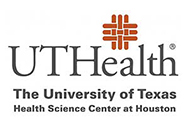
Specialties Offered:
Adult/Gerontology Primary & Acute Care, Family Nurse Practitioner, Psychiatric/Mental Health Nurse Practitioner (NP) and Nurse AnesthesiaProgram Details:
The University of Texas Health Science Center at Houston BSN to DNP degree program offers Nurse Practitioner and Nurse Anesthesia paths for students who wish to earn a post-baccalaureate Doctor of Nursing Practice degree.The curriculum for the BSN to DNP bridge program is designed to align with the National Organization of Nurse Practitioner Faculties’ initiative to transition entry-level nurse practitioner education to the doctorate level by 2024. The curriculum includes advanced practice core courses and DNP core courses, which all students complete, and individual track-specific courses. Students in the Nurse Practitioner tracks complete a minimum of 79 credit hours to satisfy graduation requirements. Nurse Anesthesia students complete 112-course credits.
Interesting Highlights
• Graduates of the BSN to DNP program’s Nurse Anesthesia track have high success rates on specialty certification examinations.• The University of Texas Health Science Center is recognized by U.S. News & World Report for having one of the best DNP programs in the country.
32. University of Arizona - Tucson, AZ

Specialties Offered:
Adult-Gerontology Acute Care Nurse Practitioner, Executive Health Systems Leadership, Family Nurse Practitioner, Nurse Anesthesia, Pediatric Nurse Practitioner, and Psychiatric Mental Health Nurse PractitionerProgram Details:
If you are a registered nurse with a Bachelor of Science in Nursing degree and ready to transition your career to advanced practice nursing, the University of Arizona has an option worth considering. The university offers one of the best BSN to DNP bridge programs in the United States.The BSN to DNP program at the University of Arizona is offered in a hybrid format, allowing students to experience a combination of online didactic coursework, on-campus intensive and in-person practicum and clinical placements. You can complete this program in two and a half years of full-time study. With the exception of the Nurse Anesthesia pathway, DNP students have the option of part-time or full-time attendance.
When you choose the University of Arizona BSN to DNP program, you will experience a broad foundation of educational preparation for advanced care of patients within your chosen specialty population. You will learn the foundations of evidence-based practice, nursing theories, and quality improvement methods. All students in the program complete a minimum of 1,000 practice immersion hours, including extensive clinical time with approved preceptors and a faculty-mentored Doctor of Nursing Practice final project.
The curriculum for the Nurse Practitioner pathways consists of 64 to 68 credit hours. Students in the Executive Health Systems Leadership option complete 50 credit hours. The Nurse Anesthesia track consists of 85 total credit hours and 2,000 clinical practice hours.
Interesting Highlights
• Many DNP faculty members are doctorally-prepared, contribute to nursing research, and all remain in active practice, making this program an excellent choice for prospective students who wish to learn from experienced, multi-dimensional advanced practice nurses.• The University of Arizona is ranked among the U.S. News & World Report’s top nursing schools for its Doctor of Nursing Practice program.
33. University of Michigan-Flint - Flint, MI

Specialties Offered:
Adult-Gerontology Acute Care Nurse Practitioner, Adult-Gerontology Primary Care Nurse Practitioner, Family Nurse Practitioner, Psychiatric Mental Health Nurse Practitioner, and Nurse AnesthesiaProgram Details:
Are you a registered nurse interested in earning both a master’s and doctorate in nursing? Does the idea of online learning interest you? If so, the BSN to DNP program offered at the University of Michigan-Flint could be the program you’re looking for.The BSN to DNP program is designed for working nurses and is offered in an online format with minimal on-campus requirements. As a student in the program, you have the option of choosing part-time or full-time study, depending on your personal availability and schedule.
The BSN to DNP with MSN program combines in-depth online coursework with hands-on learning experiences, preparing students for doctoral-level roles within the interdisciplinary healthcare team. Students who enroll full-time can begin their careers as a Doctor of Nursing Practice in as few as 36 months.
The university offers the BSN to DNP program with four Nurse Practitioner pathways and a Nurse Anesthesia option. Students who pursue NP pathways complete 70-73 credit hours. Nurse Anesthesia students earn 92 credit hours. Students complete between 1,000 and 2,500 clinical hours relevant to their chosen specialty.
Interesting Highlights
• The nursing faculty at the University of Michigan-Flint are actively involved in research projects with students, giving you the opportunity to pursue your research interests while improving healthcare services and patient outcomes in a variety of settings among multi-cultural populations.• The BSN to DNP bridge program at the University of Michigan-Flint provides excellent preparation for certification examinations, which is evidenced by outstanding first-time pass rates for graduates.
34. Baylor University - Dallas, TX

Specialties Offered:
Executive Nurse Leadership, Family Nurse Practitioner, Neonatal Nurse Practitioner, Nurse-Midwifery, Pediatric Nurse Practitioner, and Adult-Gerontology Acute Care Nurse PractitionerProgram Details:
Baylor University offers another outstanding BSN to DNP bridge program, one of the best in the nation. The program offers six specialty focus concentrations and is offered online, making it appealing to busy, working nurses.Students complete 75 credit hours of coursework, which includes master’s- and doctoral-level core coursework and specialty-relevant classes. All students complete a minimum of 1,125 practicum hours related to their chosen specialty.
Upon completion of this accredited BSN to DNP program, graduates are prepared to synthesize scientific methods and evidence to promote quality patient-centered care, utilize leadership skills and interprofessional skills to improve practice and use information technology to deliver patient care. As a graduate of the program, you will experience advanced levels of systems thinking and clinical judgment to implement in clinical prevention and population health, and be prepared to incorporate diverse, culturally sensitive approaches to advanced nursing practice.
Interesting Highlights
• Baylor University is ranked among the top 10% of DNP programs in the nation by U.S. News & World Report.• Graduates of the Baylor University DNP program demonstrate acquired knowledge in their chosen fields by having excellent pass rates on certification exams.
35. Maryville University - St. Louis, MO

Specialties Offered:
Adult-Gerontology Acute Care Nurse Practitioner (AGACNP), Adult-Gerontology Primary Care Nurse Practitioner (AGACNP), Family Nurse Practitioner (FNP), Pediatric (Primary Care) Nurse Practitioner (PNP), and Psychiatric Mental Health Nurse Practitioner (PMHNP)Program Details:
Are you an experienced bachelors-prepared registered nurse ready to move your career to higher levels? Maryville University offers an accelerated, online BSN to DNP bridge program that could help catapult your professional role.The online program is designed with a streamlined curriculum focused on the scientific underpinnings of nursing, organizational management, and healthcare policy. You can choose from five specializations and graduate with a holistic view of leadership in nursing.
Coursework is offered 100% and no campus visits are required. Students who progress through the program successfully at a full-time pace can graduate in as few as 40 months.
The BSN to DNP program curriculum consists of 68 to 77 credit hours of coursework. Students complete BSN to DNP core courses, including Theoretical Foundations of Nursing Practice, Health Promotion & Disease Prevention, and Graduate Statistics. Additionally, students complete concentration-specific classes based on their population focus. Faculty advisors arrange clinicals in your local area.
Interesting Highlights
• The University of Maryland is one of the few online BSN to DNP programs in the nation that does not require any campus visits.• Maryville University offers a BSN to DNP program option with no waiting list, which means you can begin your journey to earning a Doctor of Nursing Practice degree as soon as you are accepted.
What are Some of the Best Grants and Scholarships Available For BSN to DNP Students?
One thing that keeps a lot of people from pursuing higher education degrees is the cost associated with earning those degrees. BSN to DNP programs can be quite expensive. If cost is a concern for you, don’t give up yet! There are many resources to help with the financial obligations of BSN to DNP programs. The following are some examples of scholarships and grants available for to BSN to DNP students.
1. After College Nursing Student Scholarship ($500):
This scholarship is open to currently enrolled nursing students seeking a graduate degree. Special consideration is given to students seeking a graduate degree (MSN or DNP) with the intention of becoming a nurse educator.2. Together We Care Nurse Practitioner Scholarship Program ($2,500):
This scholarship is offered by CVS Pharmacy in partnership with Johnson & Johnson Family of Consumer Companies. The scholarship is available to students enrolled in a nationally accredited MSN- or DNP-level Nurse Practitioner program leading to APRN certification with Family Nurse Practitioner specialty.3. Helene Fuld Trust Scholarship ($5,000):
Students enrolled in an accelerated second degree or Doctor of Nursing Practice program at an accredited U.S. school of nursing.4. Advanced Practice Healthcare Scholarship (up to $25,000):
This scholarship opportunity is open to graduate nursing students studying to become Clinical Nurse Specialists, Nurse Practitioners, and Nurse Midwives attending California board- or committee-approved programs. Scholarship recipients spend 12 months practicing in a medically underserved area.5. Charlotte McGuire Scholarship Program($1,000):
The American Holistic Nurses Association offers scholarships through this program to support nurses specializing in holistic nursing. Eligible candidates must be active AHNA members and be pursuing an undergraduate or graduate-level nursing degree, like students in accredited BSN to DNP programs.6. Nurses Educational Funds Scholarships (amount varies):
The NEF offers assistance for graduate-level nursing students. Candidates must be licensed registered nurses and enrolled in a graduate nursing program, such as a BSN to DNP program and must maintain membership in a professional nursing association for the duration of their program.7. Tylenol Future Care Scholarship ($5,000-$10,000):
This scholarship is open to graduate-level nursing students who have one or more years of school remaining. Applicants must submit official transcripts, two 500-word essays, and documentation of community involvement.8. Sigma Nursing Research Grants (amount varies):
Sigma offers several grand opportunities for graduate nursing students. The grants are designed to support and promote nursing research.5 Important Factors to Consider When Deciding Which BSN to DNP Program is Right For You?
If you are considering BSN to DNP programs as an option to boost your career to the next level, you want to make decisions you can live with. The best thing to do is to weigh the pros and cons and consider specific factors to help you decide the program that is best for you. The following are five of the most important factors to consider as you choose the BSN to DNP program that is right for you.
1. Is the Curriculum Stimulating and Relevant to Your Professional Goals?
A good BSN to DNP program will offer a curriculum that combines learning and clinical practice to prepare you for graduate-level nursing roles. The program you choose should cover core competencies for your chosen specialty, provide a variety of experiences in labs and clinical settings. Lastly, it should inspire you to want to achieve goals and succeed in the program.2. What Experience Does the Faculty Have?
According to guidelines set forth by the American Association of Colleges of Nursing, DNP program faculty should be active in clinical practice. Faculty who remain in active practice are aware of significant changes in nursing and healthcare and can apply their knowledge in the classroom to benefit you. Find out as much as you can about program faculty. Don’t rely only on the school website. Talk to program alumni about their experiences. Check out the instructor’s social media profiles, especially on platforms like LinkedIn. You are paying good money to earn a DNP, so don’t feel bad about making sure you learn from the best.3. What is the Programs Retention vs. Attrition Rate?
Attrition rate refers to the number of students who leave a program before graduating. The difference between retention and attrition rates can tell you a lot about a program. Of course, the ideal situation would be for a school to have a 100% attrition rate. However, even the best BSN to DNP programs may have attritions of 5% to 10%. An attrition rate greater than 10% is reason enough to give you pause to reconsider your options. You want a program with a high retention rate, as this indicates students have adequate support throughout their programs and that they are satisfied with the program overall.4. What Percentage of Graduates Pass Their Certification Exams?
After graduating from a BSN to DNP program, you should be eligible to take a certification examination in your chosen specialty. Schools with successful programs have graduates who pass their exams. Ask about the pass rate for first-time national certification test takers.5. What Clinical Experiences Will You Have?
According to the American Association of Colleges of Nurses DNP Essentials, students in post-baccalaureate DNP programs, like BSN to DNP programs, must complete a minimum of 1,000 clinical practice hours. The program should offer clinical experiences related to your chosen specialty concentration to ensure you are adequately prepared for post-graduation practice. Also, you need to know where clinicals are completed and who arranges them.3 Most Common Challenges You Will Face in BSN to DNP Programs and How to Overcome Them
Like any educational program, BSN to DNP programs come with challenges. If you know what to expect, it will be less of a shock to you when challenges occur, and you can address the issue with fewer issues. The following are three of the most common challenges students in BSN to DNP programs face and some suggestions for how to overcome them.
Challenge #1: Maintaining a Healthy School-Work-Life Balance
About the Challenge:
BSN to DNP programs demand a lot of time and commitment. For some students, it seems almost impossible to maintain a healthy balance between school, work, and general life responsibilities.How to Overcome it:
The first step in overcoming this challenge is to be honest with yourself. Then, be honest with others. Talk to friends and loved ones about your goals and the commitment you must make to achieve them. Try to work together with family to find ways to share household responsibilities and family obligations. If you address these issues early on, they will be less likely to cause you problems later.Challenge #2: Rigorous Curriculum
About the Challenge:
Pursuing a terminal degree means you’ll have to tackle higher-level coursework. The curriculum for BSN to DNP programs consists of master’s and doctoral-level coursework, which means you will be immersed in intense study.How to Overcome it:
It can be challenging to even think about the coursework involved in a DNP program but remember... this is not your first time in nursing school. You can accomplish your DNP degree goals by being intentional about study time. Create a schedule you can live with that includes personal time and study time and stick with it. You will find the more structure you have as far as your daily routine, the easier it will be to overcome the challenges that come while in the BSN to DNP program.Challenge #3: Possible Disruptions in Your Work Schedule
About the Challenge:
Success in BSN to DNP programs requires serious commitment and hard work. One challenge any students face is the need to change work schedules or the amount of time you work. While some people continue working part-time or full-time during the program, others find it difficult to dedicate the amount of time needed to succeed.How to Overcome it:
Before you begin any program, especially an intense program like BSN to DNP degree programs, I suggest considering your financial obligations and determine how much you need to work to satisfy those obligations. Once you know how much money you need to stay on top of bills and the amount of time you need to work to accomplish that, schedule time with an academic advisor to determine whether part-time or full-time study is the better option for you.What are Some Useful Resources For BSN to DNP Students?
You can never get too much information about BSN to DNP programs or what they involve. It is a good idea to learn as much as possible about your potential role and what to expect after you graduate. There are endless resources where you can gather information and insight about earning your DNP. The following are a few examples of YouTube videos, podcasts and books you may find helpful.
YouTube Videos
• Why You Should Get Your Doctor of Nursing Practice (DNP) Degree:
In this video, you’ll hear five reasons why pursuing a DNP is a great option for nurses.• Why I Chose to Get My DNP:
NurseChi shares her story of why she chose to get a Doctor of Nursing Practice degree.• FNP vs DNP, Was Getting My DNP Worth It?:
Dr. Jemecia shares common questions about getting a DNP. The video also includes perspectives from six other DNP/Ph.D./Nurse Practitioners who give their opinions about whether a DNP is worth it.Podcasts
• The DNP Project Podcast:
This podcast offers tips and inspirational content to clarify the process of DNP Project completion and to engage DNP nurses beyond academic settings.• Doctor Nurse Podcast:
Hosted by Dr. Sandra Pagenta, DNP, APRN, this podcast offers insight into issues faced by DNP nurses learning to navigate the “business of nursing.”• Health Newsfeed:
This podcast is presented by Johns Hopkins Medicine and offers the latest news in health and medicine. It is an excellent resource for BSN to DNP students and practicing DNPs.Books
• The Doctor of Nursing Practice- A Guidebook for Role Development and Professional Issues:
This is a comprehensive guidebook offering insight into the potential roles of DNP program graduates. It includes information about professional issues such as making the decision to pursue a DNP and ways to market yourself as a DNP.• DNP Capstone Projects: Exemplars of Excellence:
Authors Barbara Anderson, Joyce Knestrick, and Rebecca Barroso present a unique focus on completed DNP capstone projects by delivering information on how to develop, construct, and complete high-quality projects.• DNP Education, Practice & Policy:
This book addresses the educational requirements of DNPs in leadership, healthcare policy, and information technology. It also covers information about the growth of the DNP role, especially within the context of contemporary healthcare.Top 5 Certification Options For BSN to DNP Graduates
There are several certification options for graduates of BSN to DNP programs. When you enroll in a program and begin planning your academic pathway, your advisor will help you choose a pathway based on your interest and goals. After graduating, you should take the national certification examination related to your specialty focus. The following are the top five certifications for BSN to DNP graduates.
1. Clinical Nurse Specialist:
The CNS certification is offered by the American Nurses Credentialing center and the American Association of Critical-Care Nurses.2. Adult-Gerontology Primary or Acute Nurse Practitioner:
The Adult-Gerontology Primary and Acute Nurse Practitioner certification is available through the American Academy of Nurse Practitioners Certification Board. The credential is valid for five years.3. Family Nurse Practitioner:
The American Nurses Credentialing Center offers a Family Nurse Practitioner certification. The exam is competency-based, providing a reliable assessment of the clinical knowledge and skills of entry-level FNPs. The credential must be renewed every five years. This certification examination is accredited by the Accreditation Board for Specialty Nursing Certification.4. Nurse Educator:
The National League for Nurses offers three certification options for nurse educators: Certified Nurse Educator, Certified Academic Clinical Nurse Educator and Academic Novice Educator. Each of these credentials is good for three years, at which time candidates who meet eligibility criteria must renew certification.5. Public Health Nurse:
The American Nurses Credentialing Center offers an Advanced Public Health Nursing Certification. The credential is valid for five years.Where Do the Majority of BSN to DNP Graduates Work? – Top 5 Work Settings
Graduates of BSN to DNP degree programs work in diverse settings. Your choice of patient population or specialty will be the major determining factor for where you will work. The following are some examples of common places where BSN to DNP graduates work.
1. Offices of Physicians:
DNP graduates who work in physicians’ offices may be nurse practitioners or nurse administrators. Your choice of specialty or career concentration will determine your job responsibilities. In physicians’ offices, the work schedule usually follows traditional office hours, Monday through Friday with no night schedules.2. General Medical and Surgical Hospitals:
In general medical and surgical hospitals, BSN to DNP program graduates typically work in executive or administrative positions. These jobs may include Director of Nursing, Chief Nursing Officer, or Administrator. Like physicians’ offices, the work schedule often consists of daytime hours during the week.3. Outpatient Care Centers:
DNP nurses in outpatient care centers may have hands-on clinical roles or administrative roles. Some job responsibilities may include analyzing and interpreting patient health data and using that information to create and implement patient care plans. Others may manage nursing teams to ensure adequate staff to patient ratios and the delivery of quality patient care.4. Offices of Other Health Practitioners:
The job of BSN to DNP program graduates in offices of other health practitioners may include supervising nursing staff, managing budgets, or delivering direct patient care. The role of the DNP nurse in these settings depends on the chosen specialty or career focus.5. Home Health Care Services:
A nurse with a DNP who works in home health may perform clinical jobs such as assessing patients, creating care plans, monitoring patient progress, and educating patients and loved ones. They may also fill roles of management such as home health director or director of nursing.What is the Typical Work Schedule and Work Hours For BSN to DNP Graduates?
After graduating from BSN to DNP bridge programs, your work schedule and number of hours worked will vary. Most graduates of these programs work in administrative or leadership positions which come with the perk of having traditional office hours. However, some clinical roles may require shift work or rotating schedules. The number of hours you work will depend on whether you choose part-time or full-time work.
What are the 5 Best Jobs For New BSN to DNP Graduates?
There are numerous job opportunities for BSN to DNP program graduates. The following are a few of the best jobs for new BSN to DNP graduations.
1. Nursing Faculty:
With a nationwide shortage of nurses, including a shortage of nursing faculty, this is one of the best jobs for BSN to DNP graduates. As the nation’s healthcare system moves to respond to these shortages, it creates excellent opportunities for DNP nurses who want to pursue a career in nursing education.2. Healthcare Lobbyist:
If you enjoy politics and like the thought of developing healthcare initiatives and influencing healthcare policy, you may consider the role of a Healthcare Lobbyist. In this role, you will have the opportunity to represent the interests of the nursing profession and professional organizations to legislators. Lobbyists work at local and federal levels to build relationships with government officials to demonstrate the effects of laws and bills on the healthcare industry and to promote positive change.3. Nursing Director or Healthcare Executive:
Hospitals and other healthcare facilities need strong leaders to help keep their businesses running smoothly. DNP graduates who want to be involved in the daily goings on of healthcare facilities and hospitals find that working in positions as executives is a great option.4. Clinical Nurse Researcher:
If you like the idea of learning new things and sharing your knowledge to improve patient and healthcare outcomes, the role of a Clinical Nurse Researcher could be a good choice for you. DNPs involved in research use their clinical expertise to find evidence that supports nursing practices or initiates change to improve outcomes.5. Advanced Practice Registered Nurse:
The APRN role comes with a variety of opportunities, depending on the type of clinical work you prefer. As a BSN to DNP program graduate, you can choose to continue in hands-on clinical practice in roles such as Nurse Practitioner, Clinical Nurse Specialist, or Healthcare Leadership.Average Salary For BSN to DNP Graduates in the Nation
What Is The Starting Salary For New BSN to DNP Graduates?
The average starting salary for graduates of BSN to DNP bridge programs is $40.88 hourly. This is equivalent to $1,635 weekly, $7,090 monthly or $85,030 annually.
| Starting BSN to DNP Salary | |
| Hourly | $40.88 |
| Weekly | $1,635 |
| Monthly | $7,090 |
| Annual | $85,030 |
| (Source: U.S. Bureau of Labor Statistics) | |
What Is The Average Salary For BSN to DNP Degree Holders?
The average annual salary after graduating from BSN to DNP degree programs is $126,300. This equals $60.72 hourly, $2,429 weekly or $10,530 monthly.
| Average BSN to DNP Salary | |
| Hourly | $60.72 |
| Weekly | $2,429 |
| Monthly | $10,530 |
| Annual | $126,300 |
| (Source: U.S. Bureau of Labor Statistics) | |
How Much Does The Salary Of BSN to DNP Degree Holders Grow With Experience?
One of the main factors impacting earning potential is the amount of experience you have. For example, graduates of BSN to DNP bridge programs begin their careers earning an average of $85,030 annually. In as few as one to four years, pay can increase to as much as $106,510. With 10-19 years of work experience, you could earn as much as $138,760 annually. Doctorally-prepared nurses who remain in their career for twenty years or more earn nearly $175,000 yearly.
| Level of Experience | Hourly | Weekly | Monthly | Annual |
| Entry-Level | $40.88 | $1,635 | $7,090 | $85,030 |
| 1-4 Years of Experience | $51.21 | $2,048 | $8,880 | $106,510 |
| 5-9 Years of Experience | $62.08 | $2,483 | $10,060 | $120,680 |
| 10-19 Years of Experience | $62.35 | $2,494 | $10,810 | $129,680 |
| 20 Years or More Experience | $78.53 | $3,141 | $13,610 | $163,350 |
| (Source: U.S. Bureau of Labor Statistics) | ||||
What Is The Total Average Annual Compensation (Salary + Benefits) For BSN to DNP Degree Holders?
One of the great things about earning potential for nurses is that compensation often involves more than a salary. As you consider the perfect job for you, be sure to talk about benefits packages. Benefits packages include perks like insurance, retirement plans, and paid sick or annual leave. In private industries, BSN to DNP program graduates receive average benefits packages of $53,401 per year. Combined with their average annual salary, that comes to a total compensation of $179,801 annually. DNP nurses who work in state and local government have total compensation plans averaging $202,003 yearly, inclusive of $76,963 in benefits and a $125,040 salary.
| Component | Private Industry | State and Local Government |
| Paid Leave | $13,305 | $15,352 |
| Supplemental Pay | $6,293 | $2,020 |
| Insurance | $14,024 | $23,634 |
| Retirement and Savings | $6,113 | $25,048 |
| Legally Required | $12,772 | $10,383 |
| Total Benefits | $49,911 | $71,928 |
| Average Annual Salary | $118,140 | $116,860 |
| Total Compensation | $168,051 | $188,788 |
| (Source: U.S. Bureau of Labor Statistics) | ||
Average Salary For BSN to DNP Graduates by Work Setting
Graduates of BSN to DNP degree programs earn different salaries, based on work settings. DNP nurses who work in physicians’ offices earn an average of $59.09 per hour, which equals $122,910 annually. In offices of other health practitioners, the salary is approximately $2,241 per week, equivalent to $116,510 annually. General medical and surgical hospital, outpatient care centers and home health care services pay between $63.26 and $68.50 hourly, which averages $131,570 to $142,490 yearly.
| Work Setting | Hourly | Weekly | Monthly | Annual |
| Offices of Physicians | $59.09 | $2,364 | $10,240 | $122,910 |
| General Medical and Surgical Hospitals | $63.25 | $2,530 | $10,960 | $131,570 |
| Outpatient Care Centers | $66.46 | $2,658 | $11,520 | $138,230 |
| Offices of Other Health Practitioners | $56.01 | $2,241 | $9,710 | $116,510 |
| Home Health Care Services | $68.50 | $2,740 | $11,870 | $142,490 |
| (Source: U.S. Bureau of Labor Statistics) | ||||
Average Salary For BSN to DNP Graduates by State
The salary for graduates of BSN to DNP bridge programs varies from one state to the next. Factors including the state’s population, number of available DNP nurses, and the cost-of-living impact earning potential. In Alabama, DNP nurses earn $52.68 per hour, equal to $2,107 weekly, $9,130 monthly, or $109.580 annually. Tennessee BSN to DNP graduates earn $48.93 hourly, $1,957 weekly, $8,480 monthly or $101,780 yearly. In New York and California, program graduates earn even higher salaries. In these states they make $68.90 to $78.11 hourly, $2,756 to $3,124 weekly, $11,940 to $$13,430 monthly or $143,320 to $162,460 annually.
| State | Hourly | Weekly | Monthly | Annual |
| Alabama | $52.68 | $2,107 | $9,130 | $109,580 |
| Alaska | $58.55 | $2,342 | $10,150 | $121,790 |
| Arizona | $61.68 | $2,467 | $10,690 | $128,300 |
| Arkansas | $55.09 | $2,203 | $9,550 | $114,580 |
| California | $78.11 | $3,124 | $13,540 | $162,460 |
| Colorado | $57.91 | $2,317 | $10,040 | $120,460 |
| Connecticut | $61.96 | $2,478 | $10,740 | $128,880 |
| Delaware | $59.79 | $2,392 | $10,360 | $124,370 |
| District of Columbia | $64.45 | $2,578 | $11,170 | $134,060 |
| Florida | $53.93 | $2,157 | $9,350 | $112,170 |
| Georgia | $56.36 | $2,254 | $9,770 | $117,230 |
| Hawaii | $65.58 | $2,623 | $11,370 | $136,410 |
| Idaho | $54.16 | $2,167 | $9,390 | $112,660 |
| Illinois | $61.97 | $2,479 | $10,740 | $128,900 |
| Indiana | $58.38 | $2,335 | $10,120 | $121,430 |
| Iowa | $62.44 | $2,498 | $10,820 | $129,870 |
| Kansas | $55.92 | $2,237 | $9,690 | $116,320 |
| Kentucky | $54.57 | $2,183 | $9,460 | $113,510 |
| Louisiana | $57.95 | $2,318 | $10,050 | $120,540 |
| Maine | $59.87 | $2,395 | $10,380 | $124,520 |
| Maryland | $59.52 | $2,381 | $10,320 | $123,800 |
| Massachusetts | $66.64 | $2,666 | $11,550 | $138,610 |
| Michigan | $55.95 | $2,238 | $9,700 | $116,380 |
| Minnesota | $65.34 | $2,613 | $11,330 | $135,900 |
| Mississippi | $57.49 | $2,299 | $9,960 | $119,570 |
| Missouri | $53.24 | $2,129 | $9,230 | $110,730 |
| Montana | $59.52 | $2,381 | $10,320 | $123,810 |
| Nebraska | $57.96 | $2,318 | $10,050 | $120,560 |
| Nevada | $63.63 | $2,545 | $11,030 | $132,340 |
| New Hampshire | $62.11 | $2,484 | $10,770 | $129,180 |
| New Jersey | $70.48 | $2,819 | $12,220 | $146,600 |
| New Mexico | $60.95 | $2,438 | $10,560 | $126,770 |
| New York | $68.90 | $2,756 | $11,940 | $143,320 |
| North Carolina | $57.99 | $2,320 | $10,050 | $120,620 |
| North Dakota | $57.99 | $2,319 | $10,050 | $120,610 |
| Ohio | $57.87 | $2,315 | $10,030 | $120,360 |
| Oklahoma | $60.01 | $2,400 | $10,400 | $124,820 |
| Oregon | $65.94 | $2,638 | $11,430 | $137,160 |
| Pennsylvania | $60.32 | $2,413 | $10,460 | $125,470 |
| Rhode Island | $65.21 | $2,608 | $11,300 | $135,630 |
| South Carolina | $52.91 | $2,116 | $9,170 | $110,050 |
| South Dakota | $57.78 | $2,311 | $10,020 | $120,180 |
| Tennessee | $48.93 | $1,957 | $8,480 | $101,780 |
| Texas | $60.64 | $2,426 | $10,510 | $126,140 |
| Utah | $58.09 | $2,323 | $10,070 | $120,820 |
| Vermont | $57.89 | $2,316 | $10,040 | $120,420 |
| Virginia | $57.78 | $2,311 | $10,020 | $120,180 |
| Washington | $67.31 | $2,692 | $11,670 | $140,000 |
| West Virginia | $53.88 | $2,155 | $9,340 | $112,080 |
| Wisconsin | $60.18 | $2,407 | $10,430 | $125,180 |
| Wyoming | $58.92 | $2,357 | $10,210 | $122,550 |
| (Source: U.S. Bureau of Labor Statistics) | ||||
Average Salary For BSN to DNP Graduates by Metro
Large metropolitan areas are attractive to graduates of BSN to DNP degree programs, as they pay well. Some of the top paying metros include Fresno, California and Sacramento--Roseville--Arden-Arcade, CA where DNP degree holders earn $158,100 and $163,760, respectively. BSN to DNP graduates in the highest paying metros make between $45.25 and $91.13 hourly, which is equivalent to $7,870 and $15,800 monthly.
| Metro | Hourly | Weekly | Monthly | Annual |
| New York-Newark-Jersey City, NY-NJ-PA | $72.54 | $2,902 | $12,570 | $150,880 |
| Boston-Cambridge-Nashua, MA-NH | $67.94 | $2,718 | $11,780 | $141,310 |
| Los Angeles-Long Beach-Anaheim, CA | $74.56 | $2,982 | $12,920 | $155,080 |
| Chicago-Naperville-Elgin, IL-IN-WI | $63.25 | $2,530 | $10,960 | $131,560 |
| Dallas-Fort Worth-Arlington, TX | $59.42 | $2,377 | $10,300 | $123,600 |
| Nashville-Davidson--Murfreesboro--Franklin, TN | $50.72 | $2,029 | $8,790 | $105,500 |
| Houston-The Woodlands-Sugar Land, TX | $63.69 | $2,548 | $11,040 | $132,480 |
| Philadelphia-Camden-Wilmington, PA-NJ-DE-MD | $62.44 | $2,498 | $10,820 | $129,870 |
| Miami-Fort Lauderdale-West Palm Beach, FL | $54.14 | $2,166 | $9,390 | $112,620 |
| Atlanta-Sandy Springs-Roswell, GA | $58.34 | $2,334 | $10,110 | $121,350 |
| Phoenix-Mesa-Scottsdale, AZ | $62.24 | $2,489 | $10,790 | $129,450 |
| Washington-Arlington-Alexandria, DC-VA-MD-WV | $63.21 | $2,528 | $10,960 | $131,470 |
| St. Louis, MO-IL | $54.22 | $2,169 | $9,400 | $112,770 |
| Tampa-St. Petersburg-Clearwater, FL | $50.39 | $2,016 | $8,740 | $104,820 |
| Kansas City, MO-KS | $57.98 | $2,319 | $10,050 | $120,600 |
| San Francisco-Oakland-Hayward, CA | $91.13 | $3,645 | $15,800 | $189,560 |
| Detroit-Warren-Dearborn, MI | $56.20 | $2,248 | $9,740 | $116,900 |
| Indianapolis-Carmel-Anderson, IN | $59.07 | $2,363 | $10,240 | $122,870 |
| Minneapolis-St. Paul-Bloomington, MN-WI | $64.79 | $2,592 | $11,230 | $134,760 |
| Cleveland-Elyria, OH | $60.83 | $2,433 | $10,540 | $126,530 |
| Seattle-Tacoma-Bellevue, WA | $70.90 | $2,836 | $12,290 | $147,480 |
| Baltimore-Columbia-Towson, MD | $58.45 | $2,338 | $10,130 | $121,570 |
| San Diego-Carlsbad, CA | $67.00 | $2,680 | $11,610 | $139,360 |
| Cincinnati, OH-KY-IN | $57.66 | $2,306 | $9,990 | $119,930 |
| Denver-Aurora-Lakewood, CO | $59.45 | $2,378 | $10,300 | $123,650 |
| San Antonio-New Braunfels, TX | $60.51 | $2,421 | $10,490 | $125,870 |
| Pittsburgh, PA | $64.44 | $2,578 | $11,170 | $134,040 |
| Memphis, TN-MS-AR | $53.59 | $2,143 | $9,290 | $111,460 |
| Orlando-Kissimmee-Sanford, FL | $53.50 | $2,140 | $9,270 | $111,290 |
| Charlotte-Concord-Gastonia, NC-SC | $59.16 | $2,367 | $10,260 | $123,060 |
| Knoxville, TN | $45.42 | $1,817 | $7,870 | $94,480 |
| Milwaukee-Waukesha-West Allis, WI | $60.05 | $2,402 | $10,410 | $124,900 |
| Columbus, OH | $57.68 | $2,307 | $10,000 | $119,970 |
| Jacksonville, FL | $56.10 | $2,244 | $9,720 | $116,680 |
| Louisville/Jefferson County, KY-IN | $55.35 | $2,214 | $9,590 | $115,130 |
| New Orleans-Metairie, LA | $58.07 | $2,323 | $10,070 | $120,780 |
| Austin-Round Rock, TX | $62.17 | $2,487 | $10,780 | $129,310 |
| Riverside-San Bernardino-Ontario, CA | $74.72 | $2,989 | $12,950 | $155,420 |
| Virginia Beach-Norfolk-Newport News, VA-NC | $56.31 | $2,253 | $9,760 | $117,130 |
| Birmingham-Hoover, AL | $52.56 | $2,102 | $9,110 | $109,320 |
| Richmond, VA | $58.37 | $2,335 | $10,120 | $121,400 |
| Hartford-West Hartford-East Hartford, CT | $59.38 | $2,375 | $10,290 | $123,510 |
| Durham-Chapel Hill, NC | $59.81 | $2,393 | $10,370 | $124,410 |
| Oklahoma City, OK | $60.38 | $2,415 | $10,470 | $125,600 |
| San Jose-Sunnyvale-Santa Clara, CA | $101.79 | $4,072 | $17,640 | $211,720 |
| Las Vegas-Henderson-Paradise, NV | $62.53 | $2,501 | $10,840 | $130,070 |
| Portland-Vancouver-Hillsboro, OR-WA | $65.84 | $2,634 | $11,410 | $136,950 |
| Salt Lake City, UT | $59.82 | $2,393 | $10,370 | $124,430 |
| Providence-Warwick, RI-MA | $64.87 | $2,595 | $11,240 | $134,920 |
| Buffalo-Cheektowaga-Niagara Falls, NY | $59.87 | $2,395 | $10,380 | $124,530 |
| Chattanooga, TN-GA | $49.68 | $1,987 | $8,610 | $103,330 |
| Jackson, MS | $58.19 | $2,328 | $10,090 | $121,040 |
| Rochester, NY | $60.27 | $2,411 | $10,450 | $125,360 |
| Rochester, MN | $65.58 | $2,623 | $11,370 | $136,410 |
| Omaha-Council Bluffs, NE-IA | $59.01 | $2,361 | $10,230 | $122,750 |
| Sacramento--Roseville--Arden-Arcade, CA | $78.73 | $3,149 | $13,650 | $163,760 |
| Tucson, AZ | $59.01 | $2,361 | $10,230 | $122,750 |
| Lexington-Fayette, KY | $55.02 | $2,201 | $9,540 | $114,450 |
| Little Rock-North Little Rock-Conway, AR | $55.56 | $2,222 | $9,630 | $115,560 |
| Dayton, OH | $56.62 | $2,265 | $9,810 | $117,770 |
| Grand Rapids-Wyoming, MI | $56.05 | $2,242 | $9,720 | $116,590 |
| Baton Rouge, LA | $56.59 | $2,264 | $9,810 | $117,710 |
| Syracuse, NY | $59.99 | $2,400 | $10,400 | $124,780 |
| Raleigh, NC | $60.91 | $2,437 | $10,560 | $126,700 |
| Worcester, MA-CT | $64.94 | $2,598 | $11,260 | $135,070 |
| Albany-Schenectady-Troy, NY | $60.18 | $2,407 | $10,430 | $125,170 |
| Fort Wayne, IN | $58.37 | $2,335 | $10,120 | $121,400 |
| Huntsville, AL | $54.42 | $2,177 | $9,430 | $113,200 |
| Ann Arbor, MI | $59.43 | $2,377 | $10,300 | $123,610 |
| Madison, WI | $60.90 | $2,436 | $10,560 | $126,670 |
| Greenville-Anderson-Mauldin, SC | $52.67 | $2,107 | $9,130 | $109,560 |
| Akron, OH | $56.87 | $2,275 | $9,860 | $118,280 |
| Allentown-Bethlehem-Easton, PA-NJ | $59.44 | $2,378 | $10,300 | $123,640 |
| Albuquerque, NM | $60.38 | $2,415 | $10,470 | $125,600 |
| Columbia, SC | $52.11 | $2,084 | $9,030 | $108,390 |
| Tulsa, OK | $60.27 | $2,411 | $10,450 | $125,370 |
| Bridgeport-Stamford-Norwalk, CT | $66.77 | $2,671 | $11,570 | $138,880 |
| Toledo, OH | $57.20 | $2,288 | $9,910 | $118,970 |
| Winston-Salem, NC | $56.44 | $2,258 | $9,780 | $117,400 |
| Springfield, MA-CT | $60.20 | $2,408 | $10,440 | $125,220 |
| Charleston-North Charleston, SC | $56.05 | $2,242 | $9,720 | $116,590 |
| Wichita, KS | $51.61 | $2,064 | $8,950 | $107,340 |
| Cape Coral-Fort Myers, FL | $57.46 | $2,298 | $9,960 | $119,510 |
| Des Moines-West Des Moines, IA | $60.58 | $2,423 | $10,500 | $126,000 |
| Gulfport-Biloxi-Pascagoula, MS | $57.38 | $2,295 | $9,950 | $119,360 |
| Boise City, ID | $56.00 | $2,240 | $9,710 | $116,480 |
| El Paso, TX | $58.00 | $2,320 | $10,050 | $120,640 |
| Augusta-Richmond County, GA-SC | $54.26 | $2,171 | $9,410 | $112,870 |
| McAllen-Edinburg-Mission, TX | $60.62 | $2,425 | $10,510 | $126,080 |
| Deltona-Daytona Beach-Ormond Beach, FL | $55.44 | $2,218 | $9,610 | $115,310 |
| Fresno, CA | $76.01 | $3,040 | $13,180 | $158,100 |
| Lafayette, LA | $64.44 | $2,578 | $11,170 | $134,040 |
| North Port-Sarasota-Bradenton, FL | $54.63 | $2,185 | $9,470 | $113,620 |
| Colorado Springs, CO | $55.08 | $2,203 | $9,550 | $114,560 |
| Portland-South Portland, ME | $60.47 | $2,419 | $10,480 | $125,780 |
| Greensboro-High Point, NC | $57.09 | $2,283 | $9,900 | $118,740 |
| Champaign-Urbana, IL | $61.10 | $2,444 | $10,590 | $127,090 |
| Springfield, MO | $51.35 | $2,054 | $8,900 | $106,810 |
| Harrisburg-Carlisle, PA | $60.29 | $2,412 | $10,450 | $125,400 |
| Johnson City, TN | $47.81 | $1,912 | $8,290 | $99,440 |
| (Source: U.S. Bureau of Labor Statistics) | ||||
Do BSN to DNP Graduates Earn Higher or Lower Compared to Other Occupations?
BSN to DNP Salary VS. All Other Occupations Salary
BSN to DNP program graduates earn an average of $126,300 yearly. All other occupations earn an average of $58,260 annually, a difference of more than $68,000 per year.
| BSN to DNP Average Annual Salary | All Occupations Average Annual Salary | Difference | |
| Number | % | ||
| $126,300 | $58,260 | +$68,040 | +116.79% |
| (Source: U.S. Bureau of Labor Statistics) | |||
BSN to DNP Salary VS. Other Healthcare Salaries
Compared to other healthcare salaries, graduates of BSN to DNP programs are among the highest income earners. DNP nurses make an average annual salary of $126,300, which is less than physicians, dentists, and podiatrists, but more than other healthcare salaries. BSN to DNP graduates make between $610 and $45,060 more than healthcare professionals, including pharmacists, physicians’ assistants, veterinarians, audiologists, and chiropractors.
| Occupation | Average Annual Salary | Difference | ||
| Number | % | |||
| Physician | $252,480 | -$126,180 | -49.98% | |
| Dentist | $177,770 | -$51,470 | -28.95% | |
| Podiatrist | $158,380 | -$32,080 | -20.26% | |
| Nurse with BSN to DNP Degree | $126,300 | $0 | 0.00% | |
| Pharmacist | $125,690 | +$610 | +0.49% | |
| Optometrist | $125,440 | +$860 | +0.69% | |
| Physician Assistant | $119,460 | +$6,840 | +5.73% | |
| Veterinarian | $109,920 | +$16,380 | +14.90% | |
| Physical Therapist | $92,920 | +$33,380 | +35.92% | |
| Occupational Therapist | $89,470 | +$36,830 | +41.16% | |
| Audiologist | $86,050 | +$40,250 | +46.78% | |
| Speech-Language Pathologist | $85,820 | +$40,480 | +47.17% | |
| Chiropractor | $81,240 | +$45,060 | +55.47% | |
| (Source: U.S. Bureau of Labor Statistics) | ||||
Highest Paid BSN to DNP Graduates
What Are The Highest Paying Work Settings For BSN to DNP Degree Holders?
BSN to DNP degree holders make the most money in settings including accounting, tax preparation, bookkeeping and payroll services, business, professional, labor, political organizations, home healthcare services, psychiatric and substance abuse hospitals and outpatient care centers. In these settings, as a BSN to DNP program graduate, you can expect salaries ranging between $138,230 and $159,410 yearly.
| Rank | Work Setting | Average Annual Salary | |||
| 1 | Accounting, Tax Preparation, Bookkeeping, and Payroll Services | $159,410 | |||
| 2 | Business, Professional, Labor, Political, and Similar Organizations | $143,170 | |||
| 3 | Home Health Care Services | $142,490 | |||
| 4 | Psychiatric and Substance Abuse Hospitals | $141,060 | |||
| 5 | Outpatient Care Centers | $138,230 | |||
| (Source: U.S. Bureau of Labor Statistics) | |||||
What Are The Highest Paying States For BSN to DNP Degree Holders?
The highest paying states for BSN to DNP program graduates are California, New Jersey, New York, Washington, Massachusetts, Oregon, Hawaii, Minnesota, Rhode Island, and Nevada. These states pay BSN to DNP degree holders between $132,340 and $162,460 yearly.
| Rank | State | Average Annual Salary | |||
| 1 | California | $162,460 | |||
| 2 | New Jersey | $146,600 | |||
| 3 | New York | $143,320 | |||
| 4 | Washington | $140,000 | |||
| 5 | Massachusetts | $138,610 | |||
| 6 | Oregon | $137,160 | |||
| 7 | Hawaii | $136,410 | |||
| 8 | Minnesota | $135,900 | |||
| 9 | Rhode Island | $135,630 | |||
| 10 | Nevada | $132,340 | |||
| (Source: U.S. Bureau of Labor Statistics) | |||||
What Are The Highest Paying Metros For BSN to DNP Degree Holders?
The United States metro areas that pay BSN to DNP program degree holders the most are in Washington, New Jersey, Oregon, New York, Pennsylvania and California. The pay in these metros ranges from $147,480 to $211,720 per year. 20 of the top 25 metros are in California.
| Rank | Metro | Average Annual Salary | |||
| 1 | San Jose-Sunnyvale-Santa Clara, CA | $211,720 | |||
| 2 | Napa, CA | $197,630 | |||
| 3 | Vallejo-Fairfield, CA | $193,010 | |||
| 4 | San Francisco-Oakland-Hayward, CA | $189,560 | |||
| 5 | Yuba City, CA | $170,410 | |||
| 6 | San Luis Obispo-Paso Robles-Arroyo Grande, CA | $164,030 | |||
| 7 | Sacramento--Roseville--Arden-Arcade, CA | $163,760 | |||
| 8 | Santa Rosa, CA | $162,800 | |||
| 9 | Santa Cruz-Watsonville, CA | $160,800 | |||
| 10 | Fresno, CA | $158,100 | |||
| 11 | Modesto, CA | $157,490 | |||
| 12 | El Centro, CA | $157,380 | |||
| 13 | Duluth, MN-WI | $157,010 | |||
| 14 | Redding, CA | $156,260 | |||
| 15 | Riverside-San Bernardino-Ontario, CA | $155,420 | |||
| 16 | Los Angeles-Long Beach-Anaheim, CA | $155,080 | |||
| 17 | Bakersfield, CA | $154,900 | |||
| 18 | Madera, CA | $152,370 | |||
| 19 | Salinas, CA | $152,080 | |||
| 20 | Visalia-Porterville, CA | $151,570 | |||
| 21 | New York-Newark-Jersey City, NY-NJ-PA | $150,880 | |||
| 22 | Trenton, NJ | $150,000 | |||
| 23 | Atlantic City-Hammonton, NJ | $149,610 | |||
| 24 | Medford, OR | $147,750 | |||
| 25 | Seattle-Tacoma-Bellevue, WA | $147,480 | |||
| (Source: U.S. Bureau of Labor Statistics) | |||||
5 Tips To Maximize Your Earnings As A BSN to DNP Degree Holder
BSN to DNP degree holders earn generous salaries. Even with the best incomes, there are always ways you can maximize your earning potential and increase your income. Here are a few tips to consider if you’re looking for ways to earn more money.
1. Get as Much Work Experience as Possible:
Nursing is like any other profession when it comes to experience, the more experience you have, the more likely you are to be eligible for raises.2. Consider Freelance Writing:
Doctorally-prepared nurses have a broader knowledge base and understanding of the intricacies of the nursing profession and patient care. You can leverage your knowledge and skills to create nursing research papers, write nursing articles, or contribute to healthcare websites.3. Explore Your Options:
You may have a really good job, but that doesn’t mean you have to settle for one avenue of income. With a doctoral nursing degree, you can cultivate your skills and competencies in several areas. Take advantage of opportunities to learn and develop skills in new areas of practice. The more you learn, the more valuable you become to prospective employers.4. Pursue Additional Certifications and Continuing Education Opportunities:
Having a terminal nursing degree does not mean there is not more to learn. If you truly want to maximize your earning potential, take advantage of continuing education opportunities or seek certification in a new specialty area. Employers like the idea of hiring nurses with more than one certification, as it adds to the value of the service they offer consumers.5. Know Your Worth!
You worked hard to get into and graduate from a BSN to DNP program. Don’t be afraid to negotiate contracts for work based on what you believe your knowledge, skills, and experience are worth.Job Outlook For BSN to DNP Graduates
What Is The 10-Year Job Outlook For BSN to DNP Degree Holders?
The 10-year job outlook for BSN to DNP degree holders is quite positive. According to the U.S. Bureau of Labor Statistics, graduates of these programs should see a 52.16% increase in jobs over the next decade.
| +52.16% | |||||
| (Source: U.S. Bureau of Labor Statistics) | |||||
What Are The Top 5 Reasons Contributing To The Demand For BSN to DNP Degree Holders?
There has never been another time when doctorally-prepared nurses were more in demand than now. Several factors contribute to the demand for DNPs. The following are some of the top reasons leading to the demand for DNPs, like graduates of BSN to DNP programs.
1. Nationwide Shortage of Nurses:
The main reason for the demand for BSN to DNP graduates is the nationwide shortage of qualified nurses to fill a variety of professional-level roles.2. Increased Need for Healthcare Practitioners:
Populations today are faced with several healthcare issues, including chronic and acute illness. The increased numbers of people affected by health problems means there is an increased need for practitioners to provide care. BSN to DNP programs offer several specialty options that allow students to choose patient populations to serve, meeting those needs.3. Replacement Jobs Needing Filled:
As the baby-boom generation reaches retirement age, nurses in that age group leave positions open that need to be filled. BSN to DNP program graduates are prepared to fill a variety of roles, making them a good choice to replace retiring nurses.4. Doctorally-Prepared Nurses Have Less Restrictions on Scope of Practice:
Nurses who graduate from BSN to DNP programs and obtain specialty certification have a broader scope of practice, making it possible for them to take on more responsibilities. The fact that an employer can hire one nurse who is doctorally-prepared vs hiring a few nurses with limited scope of practice makes the DNP nurse desirable.5. Hiring Nurses with a DNP Saves Employers Money:
Although DNPs make more money than nurses with lesser degrees, in the long run it has proven to be cost-effective for employers and healthcare facilities. One thing that contributes to this is that doctorally-prepared nurses reportedly have fewer errors in care and improved patient outcomes.What Is The 10-Year Job Outlook For BSN to DNP Degree Holders In Your State?
The 10-year job outlook for BSN to DNP degree holders is positive nationwide. States expect increases between 14.29% and 50.90% throughout the next decade. The actual job growth is typically impacted most by an area’s population.
| State | 10-Year Job Outlook (2018-2028) | ||||
| Alabama | +24.21% | ||||
| Alaska | +8.57% | ||||
| Arizona | +50.90% | ||||
| Arkansas | +31.47% | ||||
| California | +30.46% | ||||
| Colorado | +44.74% | ||||
| Connecticut | +20.53% | ||||
| Delaware | +30.77% | ||||
| Florida | +36.94% | ||||
| Georgia | +41.37% | ||||
| Hawaii | +23.81% | ||||
| Idaho | +24.36% | ||||
| Illinois | +31.13% | ||||
| Indiana | +29.41% | ||||
| Iowa | +30.15% | ||||
| Kansas | +18.29% | ||||
| Kentucky | +22.32% | ||||
| Louisiana | N/A | ||||
| Maine | +20.61% | ||||
| Maryland | +34.88% | ||||
| Massachusetts | +16.17% | ||||
| Michigan | +16.12% | ||||
| Minnesota | +23.04% | ||||
| Mississippi | +7.14% | ||||
| Missouri | +29.69% | ||||
| Montana | +26.47% | ||||
| Nebraska | +19.66% | ||||
| Nevada | +28.57% | ||||
| New Hampshire | +29.91% | ||||
| New Jersey | +28.16% | ||||
| New Mexico | +27.62% | ||||
| New York | +41.28% | ||||
| North Carolina | +30.42% | ||||
| North Dakota | +31.37% | ||||
| Ohio | +24.61% | ||||
| Oklahoma | +19.44% | ||||
| Oregon | +31.98% | ||||
| Pennsylvania | +26.46% | ||||
| Rhode Island | +14.29% | ||||
| South Carolina | +25.64% | ||||
| South Dakota | +27.27% | ||||
| Tennessee | +34.67% | ||||
| Texas | +31.86% | ||||
| Utah | +34.30% | ||||
| Vermont | +16.07% | ||||
| Virginia | +30.74% | ||||
| Washington | +28.54% | ||||
| West Virginia | +24.78% | ||||
| Wisconsin | +22.95% | ||||
| Wyoming | +30.00% | ||||
| (Source: Careeronestop.org) | |||||
What States Have The Highest 10-Year Job Outlook For BSN to DNP Degree Holders?
Arizona, Colorado, Georgia, New York, Florida, Maryland, Tennessee, Utah, Oregon, and Texas are the states with the highest 10-year job outlook for BSN to DNP degree holders. According to CareerOneStop.org, these states can expect to see increases in DNP jobs between 31.86% and 50.90%.
| Rank | State | 10-Year Job Outlook (2018-2028) | |||
| 1 | Arizona | +50.90% | |||
| 2 | Colorado | +44.74% | |||
| 3 | Georgia | +41.37% | |||
| 4 | New York | +41.28% | |||
| 5 | Florida | +36.94% | |||
| 6 | Maryland | +34.88% | |||
| 7 | Tennessee | +34.67% | |||
| 8 | Utah | +34.30% | |||
| 9 | Oregon | +31.98% | |||
| 10 | Texas | +31.86% | |||
| (Source: Careeronestop.org) | |||||
What are the Top Organizations and Associations For BSN to DNP Graduates?
1. American Association of Nurse Anesthesiology:
The American Association of Nurse Anesthesiology represents nearly 60,000 Certified Registered Nurse Anesthetists and students studying to become CRNAS. The association promotes education, guidelines, and practice standards regarding nurse anesthetists and their practice.2. American Association of Nurse Practitioners:
The American Association of Nurse Practitioners offers support to nurse practitioners to promote and advance person-centered, high-quality healthcare for diverse communities. The AANP accomplishes these goals through education, practice, research, leadership, and advocacy.3. American College of Nurse-Midwives:
The American College of Nurse-Midwives represents certified midwives and certified nurse midwives across the U.S. The ACNM works to set a standard of excellence in midwife education and practice in the U.S.4. American Nurses Association:
The American Nurses Association (ANA) represents registered nurses nationwide. The association works to promote the nursing profession by establishing and supporting high standards of nursing practice, promoting safe work environments, and advocating on healthcare issues that affect the public and the nursing profession.5. American Organization for Nursing Leadership:
The American Organization for Nursing Leadership is the voice of nursing leadership, working to transform healthcare through influential, expert nursing leadership. The organization helps to advance professional development of nurse leaders through competency-based learning and through service to nurse leaders at all stages of their careers.6. Association of Public Health Nurses:
The Association of Public Health Nurses is dedicated to shaping the role of public health nursing relevant to population health. The association educates and advocates for polices and practices designed to advance the practice of public health nursing with the objective of promoting better public health.7. The American Board of Nursing Specialties:
The American Board of Nursing Specialties is a non-profit, member-based organization focused on improving patient outcomes and protecting consumers. The ABNS believes the way to accomplish these goals is to promote specialty nursing certification for all nurses.What are the 3 Best Advancement Opportunities For BSN to DNP Degree Holders?
One of the great things about a career in nursing is that there is always room for advancement. Even nurses with a terminal degree, like BSN to DNP program graduates can find ways to advance their careers. Here are some of the best advancement opportunities for BSN to DNP degree holders.
1. Chief Nursing Officer:
The CNO provides leadership for all nursing functions within a healthcare organization. In this position, you may manage high-level budgeting, implement plans to improve delivery of care, manage finances, integrate new medical technologies into practice, and represent nursing interests within your organization.2. Certified Registered Nurse Anesthetist:
One of the highest paying DNP jobs is that of a CRNA. If you like the idea of autonomous practice with good income-earning and career advancement potential, the Certified Registered Nurse Anesthetist role is worth considering.3. Director of Nursing Education:
If you have a strong desire to share your knowledge and skills with others and shape the future of nursing, you could use your DNP to land a job as a Director of Nursing Education. This job involves leading nursing faculty and educators, coordinating curriculum and program development, overseeing continuing education opportunities and supervising instructional practices within federal and state guidelines for accredited nursing programs.Bonus! 7 Expert Tips to Improve Your Chances of Getting Accepted Into the Best BSN to DNP Programs in the Nation
Once you decide you want to pursue a Doctor of Nursing Practice degree, the next step is to apply and get accepted into a program. If you don’t know what to expect from the application process, it can feel a bit overwhelming. The following are a few expert tips to help improve your chances of getting accepted into one of the best BSN to DNP programs in the nation.
1. Choose a Program that Fits Your Goals and Needs:
There are several colleges and universities that offer BSN to DNP degree programs. However, not all schools offer the same specialty options. You should research schools that interest you to ensure they have the program offerings that align with your professional goals. At some point, you may be asked to participate in an admissions interview, and you can be sure someone will ask you why you chose their school. You need to be able to express the highlights of the program and how you believe you could benefit from the program and what you bring to the table as a student.2. Be Intentional About Meeting ALL Admission Requirements:
One of the most common reasons applicants are rejected from graduate nursing programs is they don’t meet the admission requirements. Once you decide on a few BSN to DNP programs, familiarize yourself with their admission criteria. Make sure you have the required work experience, complete all required prerequisite coursework, and maintain your CPR certification and RN license in good standing.3. Choose the Right People to Write Your Letters of Recommendation:
Most graduate nursing programs, like BSN to DNP programs, require applicants to submit two or three letters of professional recommendation. You need to choose people to write these wisely. Your letters should come from supervisors, employers, or former nursing faculty. If possible, make sure you request letters from individuals who are doctorally-prepared. The letter should speak to your personal and professional character, work ethic, and the likelihood of your success in a graduate nursing program.4. Prepare for an Admissions Interview:
The admissions interview is your opportunity to demonstrate why you should be offered an invitation for admission to the BSN to DNP program. This is most likely the first encounter you will have with some of the nursing faculty and your only opportunity to make a good first impression. Consider possible interview questions they may ask and be prepared to answer them. Practice mock interviews with a friend or family member. The interview is also an excellent time for you to ask questions. It is a good idea to think of three to five questions relevant to the program that you can ask when it is your turn.5. Seek Volunteer Opportunities Related to Nursing and Healthcare:
Nursing schools like to see applicants who take the initiative to get involved in volunteering. Some of your coursework in a BSN to DNP program will include Population Health and Disparities in Healthcare. If you have the opportunity to volunteer in an underserved community, don’t pass it up!6. Apply Early and Make Sure Your Application is COMPLETE:
Admission into the best accredited BSN to DNP programs can be quite competitive. Schools may have several applicants but a limited number of spots in the program. You should put forth the effort to gather all necessary documents, including copies of licenses, certifications, your current resume, and any other items the school requests as soon as possible. Complete your application and submit it with all required documents. As a former student recruiter and retention counselor, I can tell you that admissions committees do look at the date your application was accepted. Early submission shows you are eager to get started and that you do not procrastinate.7. Apply to Several Schools:
Unfortunately, although the need for nurses is greater today than ever before, there remains a shortage of nursing faculty nationwide. This shortage has caused nursing schools to limit the number of students they can accept into BSN to DNP programs. Many times, qualified applicants with a likelihood of success are turned away or wait-listed. If you apply to several schools, you increase your chances of acceptance into one. Don’t worry...if you receive more than one letter of acceptance, you can decide which program is best suited to help you achieve your academic and professional goals.My Final Thoughts – is a BSN to DNP Program Worth It?
Throughout this article, we have discussed several key factors about BSN to DNP programs and have answered questions like, “What are the best BSN to DNP bridge programs in the nation?” If you are interested in earning a Doctor of Nursing Practice, there is really no time like the present. As a nurse and healthcare educator, I truly believe earning a DNP is worth the time and effort. I encourage you to consider the 35 best accredited online and campus BSN to DNP programs in the nation for 2025 featured in this article and start pursuing your dream of becoming a Doctor of Nursing Practice.
Frequently Asked Questions Answered by Our Expert
1. Are BSN to DNP Programs Hard To Get Into?
Admission to BSN to DNP programs can be quite competitive. You can improve your chances of getting into a BSN to DNP program by working to achieve a good undergraduate GPA and making sure you meet the requirements before applying.2. Is There A Waiting List For BSN to DNP Programs?
Many BSN to DNP programs do have a waiting list. I suggest applying to several schools to help improve your chances of admission.3. Do BSN to DNP Programs Have To Be Accredited?
You may find some BSN to DNP programs that are not accredited. Employers want to hire nurses who have the highest level of education possible, and accreditation helps ensure students are receiving high-quality education. Therefore, I suggest avoiding any nursing program that is not accredited.4. Are Online BSN to DNP Programs Accredited?
There are several options for accredited online BSN to DNP bridge programs.5. Typically, How Long Does The BSN to DNP Program Take To Complete?
BSN to DNP programs can take two to five years to complete. Whether you choose to study part-time or full-time and the number of credits and clinical hours you need will determine your schedule and how long it takes to graduate.6. How Can I Complete The BSN to DNP Program Faster?
Some nursing schools offer accelerated paths to the DNP, which could reduce the amount of time it takes to complete the program. Additionally, you may have the option to test out of some classes.7. Typically, How Much Does The BSN to DNP Program Cost?
BSN to DNP programs can cost anywhere from $80,000 to nearly $200,000 to complete.8. Are Scholarships Available For BSN to DNP Students?
Scholarships for BSN to DNP students are available from several sources. Colleges, universities, healthcare employers and community organizations are a few examples of places where you may find scholarship opportunities.9. Are Grants Available For BSN to DNP Students?
There are several resources that offer grants for graduate nursing students. Professional nursing organizations and associations, healthcare organizations, and the federal government are a few places you should consider applying for grants for a BSN to DNP program.10. Are Student Loans Available For BSN to DNP Programs?
There are many types of student loans available for BSN to DNP programs. Private loans, federal education loans, and work-study loans are a few options.11. Are GRE Scores Required For Admission Into BSN to DNP Programs?
The GRE test measures verbal analytical and quantitative reasoning and applicants with a BSN have already demonstrated their abilities. Therefore, GRE scores may be accepted by a nursing school, but they are usually not required for BSN to DNP program applicants.12. Is Professional Nursing Experience Required To Be Accepted Into BSN to DNP Programs?
Yes, professional nursing experience is a requirement for admission to BSN to DNP programs. Most programs require a minimum of one year of clinical nursing experience. Some specialty concentrations require more than one year; so, it is important that you verify the admission criteria for your chosen population or specialty focus.13. What Is The Minimum GPA Required To Get Into BSN to DNP Programs?
Most BSN to DNP programs require a minimum 3.0 grade point average on a 4.0 grading scale as a stipulation for admission. The grade point average is usually cumulative from all undergraduate coursework.14. Can I Get Into BSN to DNP Programs With A Low GPA?
Admission to BSN to DNP programs is very competitive. Although there may be extenuating circumstances, it is not likely that you will be admitted to one of these programs with a low GPA.15. What If My GPA Is Below The Minimum Requirement, Can I Still Get Into BSN to DNP Programs?
BSN to DNP programs prepare nurses for the highest level of nursing practice, which means a candidate’s likelihood of success in the program is a factor considered during the application process. Most BSN to DNP programs do not waiver regarding their minimum GPA requirements.16. Can International Students Apply To BSN to DNP Programs?
International students may apply to BSN to DNP programs. The admission criteria may vary and includes English proficiency, written and spoken, as well as some standardized test scores. If you are an international student considering a BSN to DNP program, be sure to verify all admission requirements and talk with an admissions advisor to ensure you have all the documentation you need.17. What Prerequisites Are Required To Get Into BSN to DNP Programs?
Prerequisite course requirements may vary a bit from one BSN to DNP program to the next. Applicants must complete all courses necessary for an undergraduate degree, including Statistics, Transition to Professional Practice and Population Health.18. Do I Need To Complete The Prerequisites Before I Apply To BSN to DNP Programs?
Yes, you do need to complete prerequisites before applying to BSN to DNP degree programs. The good news is, since you already have a BSN, you will likely already have the necessary prerequisites completed.19. What Are The Total Number Of Courses In A BSN to DNP Program?
The number of courses you need to take in a BSN to DNP program varies. These programs include master’s and doctoral level core courses and well as specialty-relevant coursework.20. How Many Credits Do I Need To Graduate From A BSN to DNP Program?
The number of credits needed to graduate from BSN to DNP programs varies, depending on the specialty concentration you choose to pursue. Most programs require 70-85 credits. However, concentrations such as Nurse Anesthesia often require 100 or more credits.21. Does The BSN to DNP Program Curriculum Include Clinical Training?
The curriculum for accredited BSN to DNP bridge programs includes a clinical component. The number of hours varies, but most average 1,000 or more clinical hours.22. Exactly, How Many Clinical Training Hours Are There In A BSN to DNP Program?
According to guidelines set forth by the American Association of Colleges of Nursing, DNP students must complete a minimum of 1,000 post-baccalaureate clinical hours.23. What Are The Hardest Classes In A BSN to DNP Program?
Opinions vary about which classes are hardest in BSN to DNP programs. Classes that seem easy to you may be difficult for others to master and vice versa. The classes most commonly mentioned as the most difficult for BSN to DNP students are Pathophysiology, Pharmacotherapeutics, and Evidence-Based Practice.24. How Many Hours Do I Need To Study For The BSN to DNP Program?
You should be prepared to dedicate a minimum of three clock hours for each credit hour you are enrolled in each week to study. For example, if you are enrolled in 15 credit hours, you should plan for a minimum of 45 hours of study time each week.25. How Hard Is It To Complete The BSN to DNP Program?
BSN to DNP programs are rigorous. The coursework is heavy, and you must complete clinicals and DNP Scholar Projects. However, with careful planning, determination, and dedication, you can successfully complete the programs.26. Are There Any Online BSN to DNP Programs?
Many BSN to DNP programs offer online learning options. Keep in mind, online students must still complete clinical requirements and may be required to have limited campus visits for things such as skills laboratories or counseling with faculty and advisors.27. Are There Any Part-Time BSN to DNP Programs?
There are part-time BSN to DNP programs. Some schools offer only part-time options while others offer both part-time and full-time options.28. Can I Work Part-Time And Successfully Complete The BSN to DNP Program?
Yes, you can work part-time and successfully complete a BSN to DNP program. In fact, most schools recommend part-time employment instead of full-time while enrolled in the program.29. Can I Work Full-Time And Successfully Complete The BSN to DNP Program?
It is possible to work full-time and be successful in a BSN to DNP program, but it is not always recommended. These programs require a great deal of time and dedication. If you feel you must work, talk with your academic advisor and your employer to work out school and work schedules that can help you meet your obligations for both without becoming overwhelmed or overworked.30. What Is The Best BSN to DNP Program In The Nation?
The best BSN to DNP program in the nation is offered at Johns Hopkins University in Baltimore, MD.| Johns Hopkins University - Baltimore, MD |
31. What Is The Best BSN to DNP Program In New York?
Columbia University offers the best BSN to DNP program in New York.| Columbia University - New York, NY |
32. What Is The Best BSN to DNP Program In Texas?
The best BSN to DNP program in Texas is offered at Texas Christian University.| Texas Christian University - Fort Worth, TX |
33. Are New BSN to DNP Graduates In High Demand?
Yes, graduates of BSN to DNP degree programs are in high demand. A nationwide nursing shortage and a push to move entry-level nursing positions to the doctoral level are a few reasons why the demand is so high.34. How Many Hours A Week Does A BSN to DNP Degree Holder Work?
The number of hours a BSN to DNP degree holder works weekly varies, depending on their role, job responsibilities, and they work part-time or full-time.35. How Much Does A New BSN to DNP Graduate Make?
New BSN to DNP graduates make an average annual salary of $85,030.| $85,030 |
36. On An Average, How Much Does A BSN to DNP Degree Holder Make?
The average annual income for BSN to DNP degree holders nationwide is $126,300.| $126,300 |
37. What State Pays The Highest Salary For BSN to DNP Degree Holders?
California pays BSN to DNP degree holders the highest salaries. Degree holders there make approximately $162,460 on average.| California |
| $162,460 |
38. What Metro Pays The Highest Salary For BSN to DNP Degree Holders?
The San Jose-Sunnyvale-Santa Clara, California is the metro that pays the highest salary for BSN to DNP degree holders. In that metro, DNP nurses make an average of $211,720 yearly.| San Jose-Sunnyvale-Santa Clara, CA |
| $211,720 |
39. What State Has The Best Job Outlook For BSN to DNP Degree Holders?
Arizona has the best job outlook for BSN to DNP degree holders. The state anticipates an increase in jobs by more than 50% over the next decade.| Arizona |
| +50.90% |
40. Are BSN to DNP Degree Holders Happy With Their Career?
Most sources report that DNP degree holders are satisfied with their jobs and, given the chance, would choose the same career path again.41. Do I Need A BSN To Get A DNP?
No, you do not need a BSN to get a DNP. Some nursing schools offer RN-to-DNP programs available to associate-degree registered nurses who meet eligibility requirements.42. Are Nurses With A DNP Called Doctors?
Nurses with a DNP are often referred to as doctors. It is usually up to the nurse and their employer how they will be addressed professionally. If you earn a DNP and choose to use the title of doctor, it is important that you clarify your role when speaking to patients or others who may not understand what a DNP is so they do not expect you to act in the capacity of a medical doctor.43. What Can A DNP Do That An NP Cannot?
Although both NP and DNP roles are advanced, the DNP is a terminal nursing degree. As such, the knowledge base of DNP nurses opens some doors that the NP does not. Because of the deep knowledge of evidence-based practices, DNP nurses may be more involved with issues related to lobbying for change in healthcare policies and healthcare initiatives that affect patients and populations.44. Will I Have To Find My Own Preceptors In A BSN to DNP Program?
Each school determines guidelines for clinical practice experiences. Although some schools may allow students to find preceptors, the final decision is up to the school. On the other hand, many schools that offer BSN to DNP programs have prearranged clinical sites and preceptors.45. Are Campus Visits Required For An Online BSN to DNP?
Some online BSN to DNP programs require on-campus visits. Most of the time, these visits are limited to only a few times and typically involve face-to-face encounters with faculty or lab simulations.46. Does DNP Get Paid More Than NP?
Nurse Practitioners earn approximately $118,040 annually. Doctorally-prepared registered nurses earn an average of $126,300 yearly, a difference of $8,260 or 7%.| DNP | NP | Difference | |
| Number | % | ||
| $126,300 | $118,040 | +$8,260 | +7.00% |
47. What Is The Pay Difference Between DNP And BSN?
The pay difference between BSN and DNP nurses is quite significant. BSN nurses earn an average salary of $82,750 per year, while DNP nurses earn $126,300, a difference of $43,550.| DNP | BSN | Difference | |
| Number | % | ||
| $126,300 | $82,750 | +$43,550 | +52.63% |
 Darby Faubion BSN, RN
Darby Faubion BSN, RN
Darby Faubion is a nurse and Allied Health educator with over twenty years of experience. She has assisted in developing curriculum for nursing programs and has instructed students at both community college and university levels. Because of her love of nursing education, Darby became a test-taking strategist and NCLEX prep coach and assists nursing graduates across the United States who are preparing to take the National Council Licensure Examination (NCLEX).